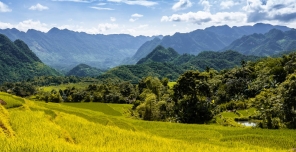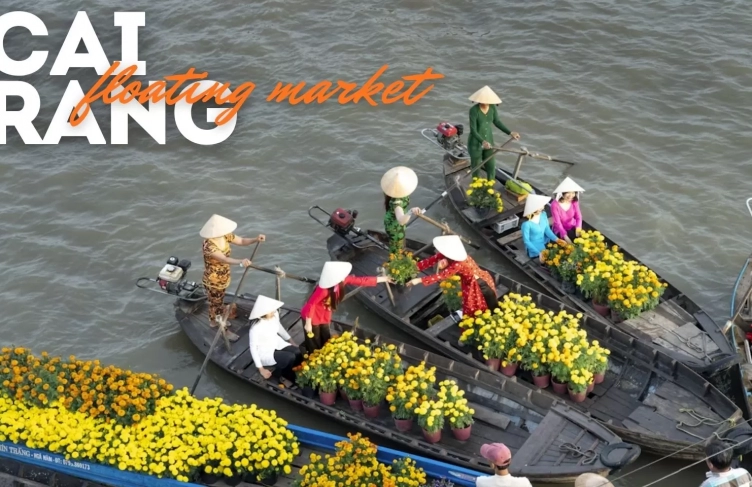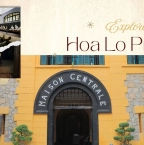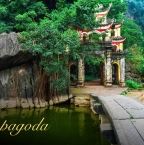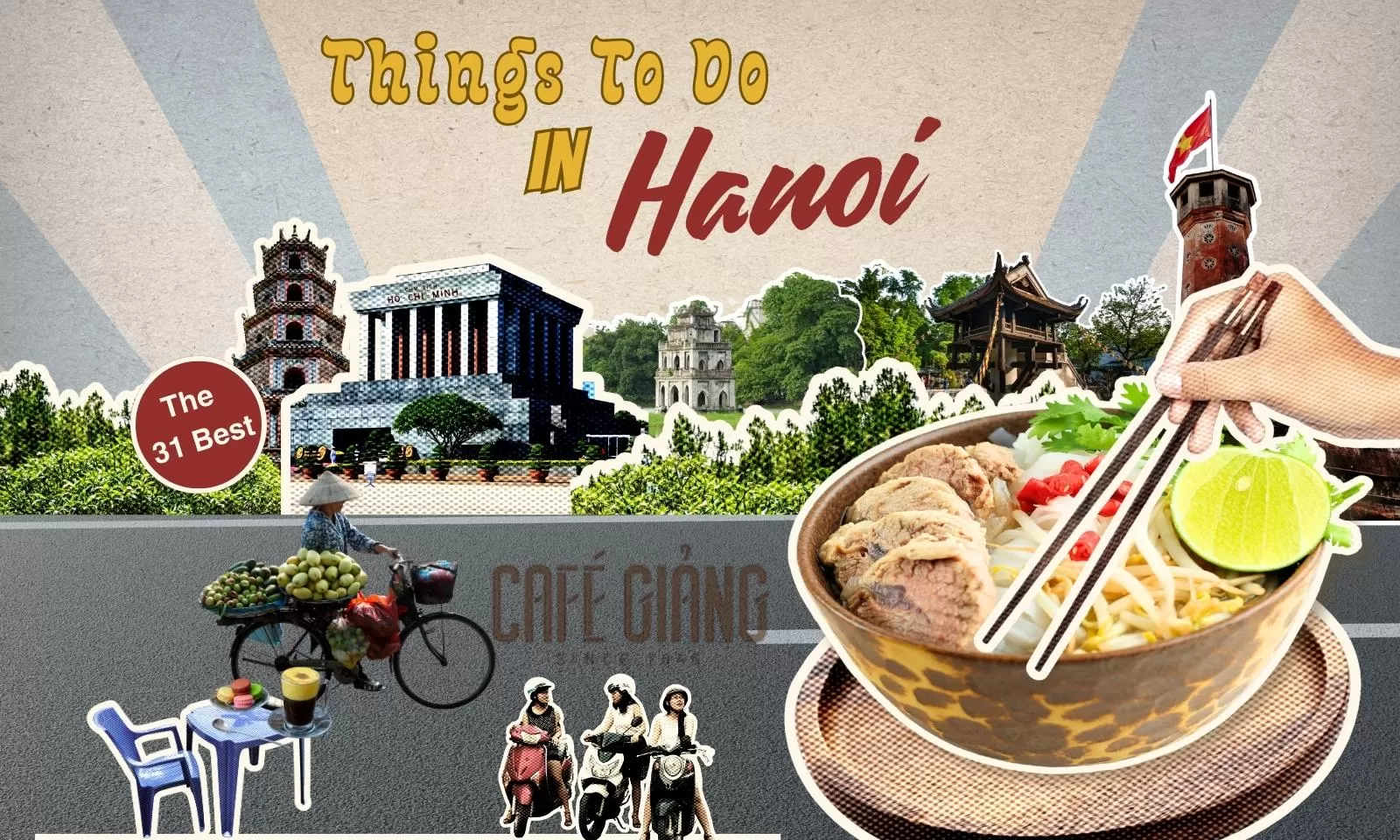
The 31 Best Things To Do In Hanoi

Hanoi, an essential destination and the capital of Vietnam, where “Vietnamese life” blends with colonial past. Scooters reign supreme in the heart of a labyrinth of alleys crowded with small stands, various shops, and street food stalls. The air is filled with the sounds of lively conversations, the aroma of sizzling dishes, and the constant hum of motorcycles zipping by. Ancient temples and French-inspired buildings stand side by side, reflecting the city’s unique cultural fusion.
Table of Contents
- Visiting Hanoi: The complete guide
- What to see in Hanoi
- One Pillar Pagoda
- Ho Chi Minh Mausoleum
- Temple of Literature
- Museum of Ethnography
- Quan Thanh Temple
- Tran Quoc Pagoda
- Train Street
- The Women’s Museum
- A Lacquer Workshop
- The Lake of the Returned Sword
- Dong Xuan Market
- The Ancient House of Ma May
- St. Joseph’s Cathedral
- Long Bien Bridge
- Bach Ma Temple
- National Museum of Vietnamese History
- Vietnam Military History Museum
- Hoa Lo Prison
- Hanoi Opera House
- Trang Tien Plaza
- The night market
- The surroundings of Hanoi
- What to do in Hanoi
- When to visit Hanoi?
- How many days to visit Hanoi?
Visiting Hanoi: The complete guide
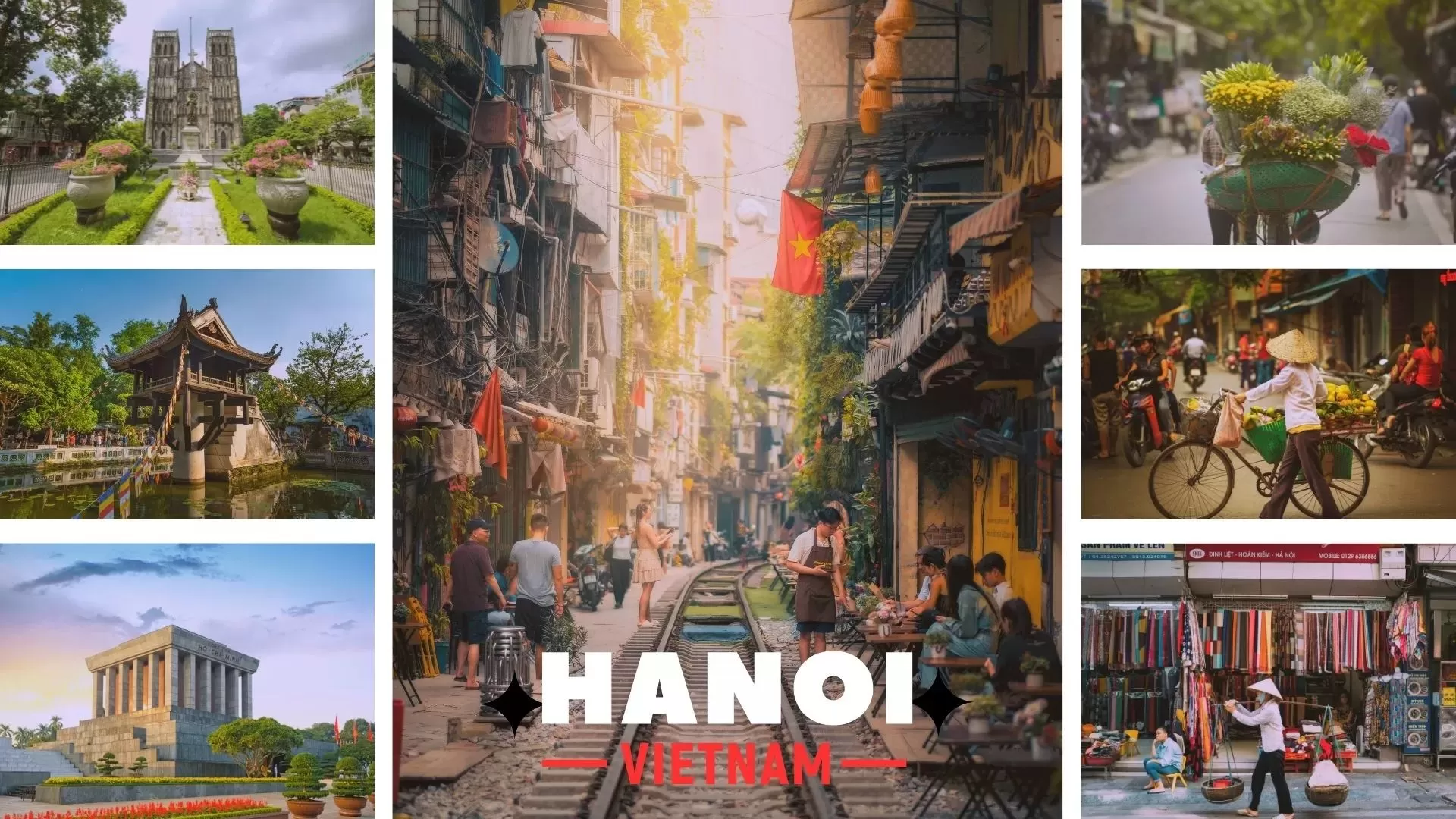
The congestion on the sidewalks is a true spectacle! Clothing vendors, small low tables and stools for dining, children playing, artisans, etc. Cyclo-rickshaws navigate through the streets of old and specialized quarters by profession.
The colonial quarter, with its beautiful yellow buildings lining wide avenues, recalls Hanoi’s colonial history. The beautiful Hoan Kiem Lake in the center is the lungs of Hanoi and the meeting place for strolling in the shade of tall trees, shopping in luxurious boutiques, or practicing Tai Chi amidst the early morning crowd of Hanoians.
Our agency, Hanoi Voyages, located in Hanoi, is French-speaking and proud to have over 15 years of experience. We are a leader in the market for private individual travel, with a private vehicle, driver, and guide.
What to see in Hanoi
Hanoi is a city where the past and present beautifully intertwine. With over a thousand years of history, ancient temples sit beside modern cafes, and narrow alleys lead to grand colonial architecture. If you’re visiting Hanoi and wondering what to see, this guide covers the must-visit attractions that showcase the city's charm, culture, and complexity.
One Pillar Pagoda
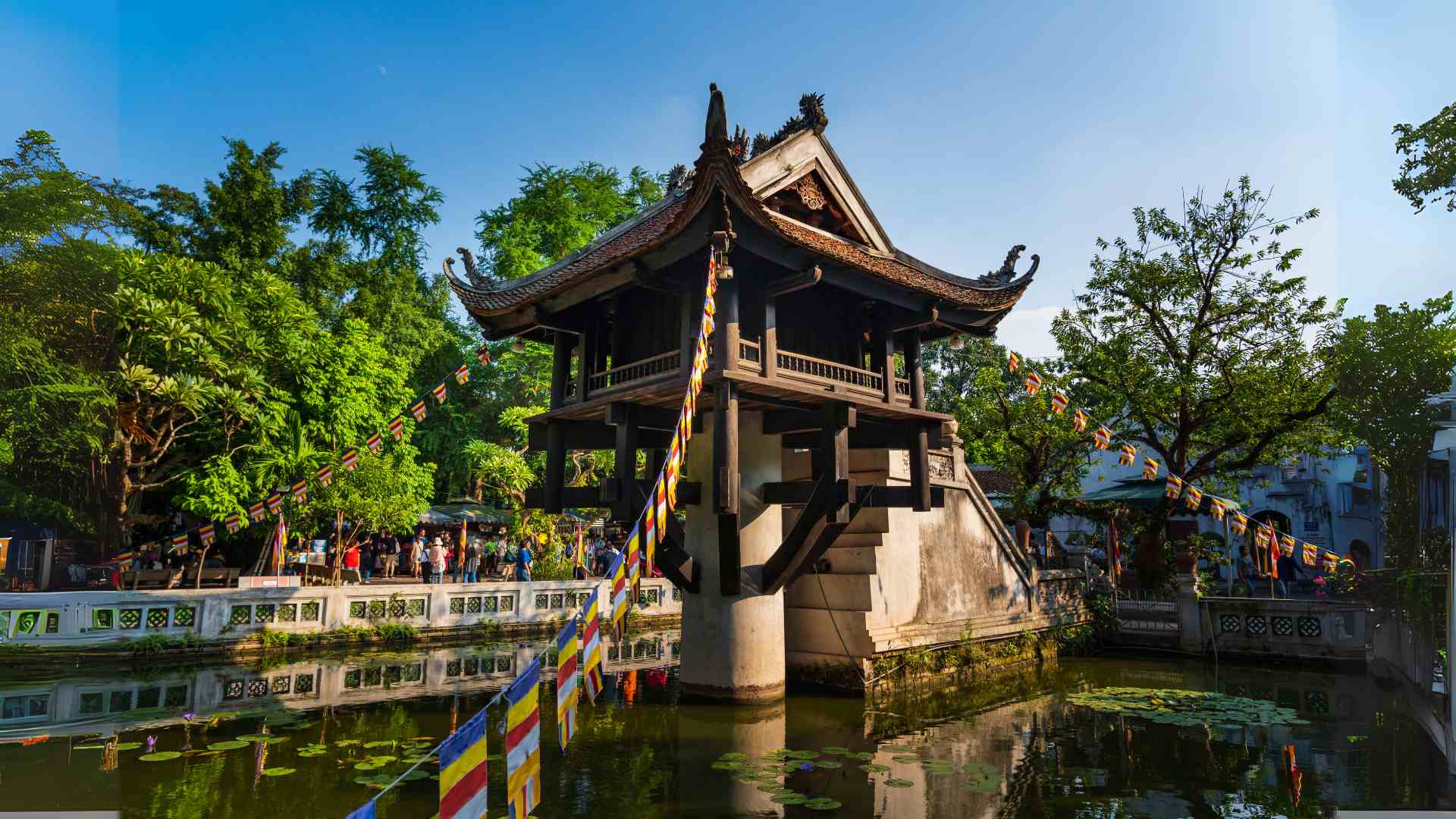
The One Pillar Pagoda is very attractive due to its impressive architecture. It is attached to the legend of King Ly Thai Tong. It is built in the shape of a lotus flower emerging from the water by a single pillar in the center.
Ho Chi Minh Mausoleum
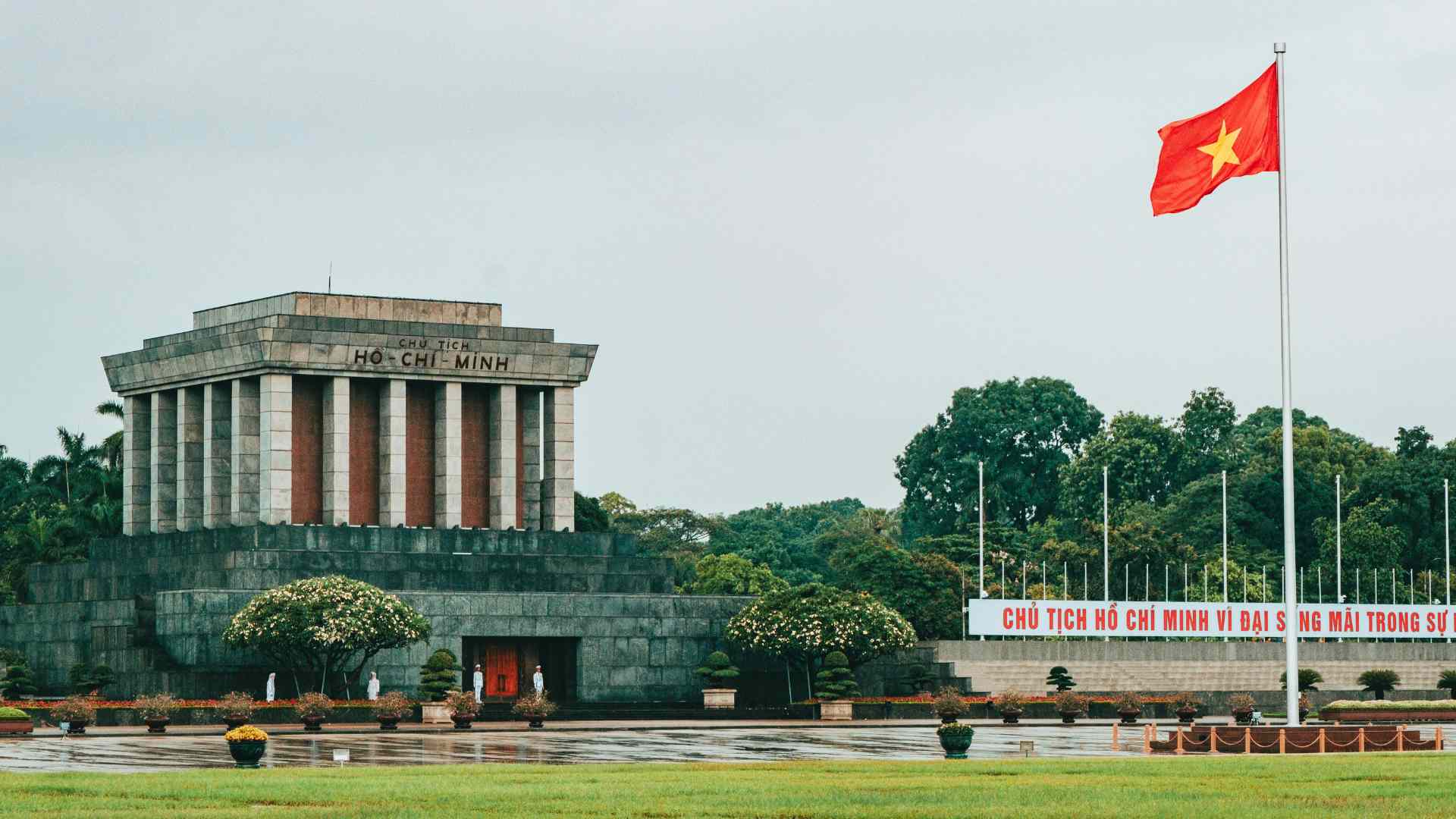
Ho Chi Minh Mausoleum is one of the most visited places in Hanoi. It houses the remains of the founding father of independent Vietnam, displayed in a crystal coffin. Don’t miss out on this unforgettable experience. Join us as we delve into the heart of Vietnam’s heritage.
Temple of Literature
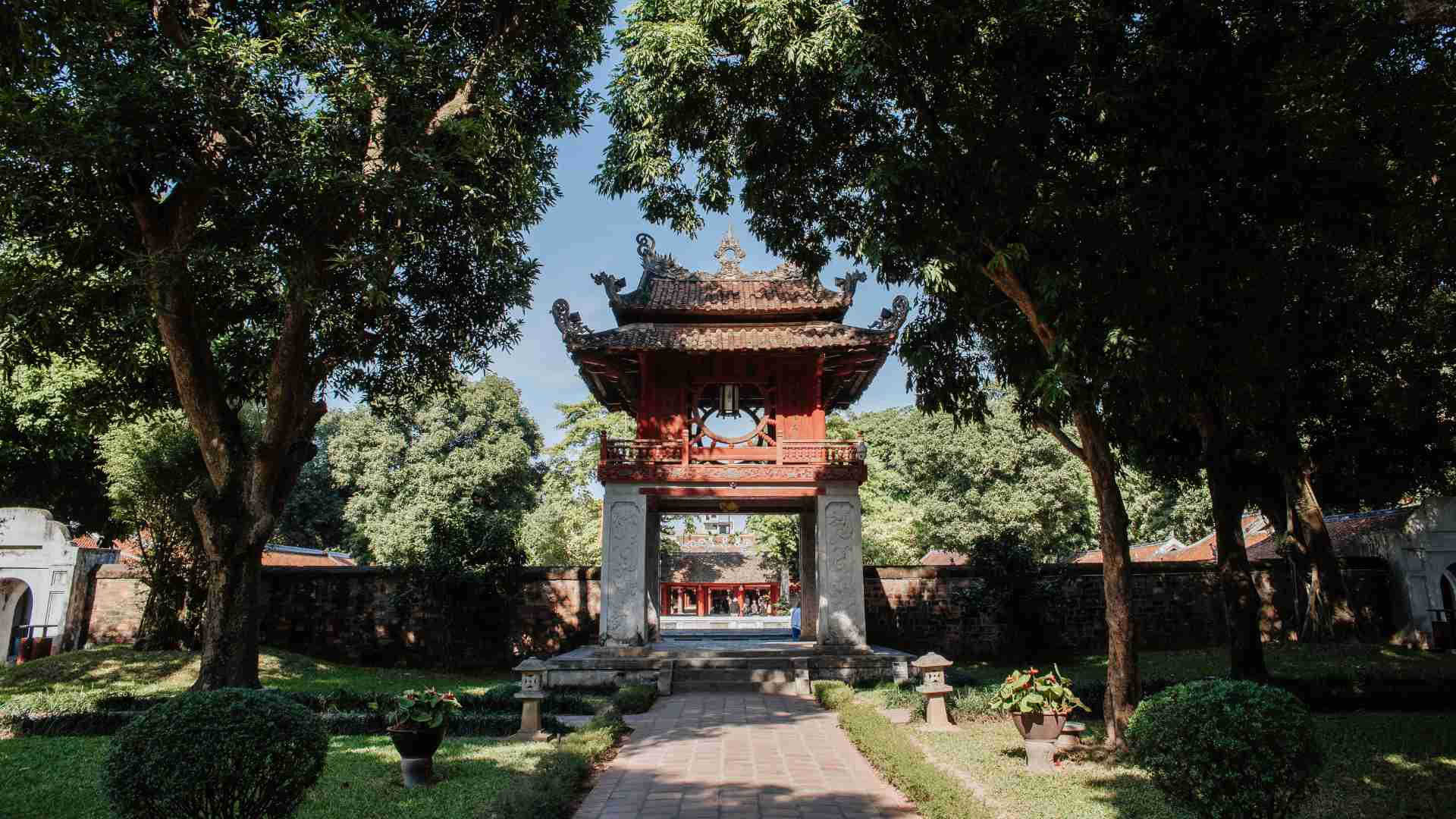
Dedicated to the worship of Confucius and the Literati. Built in 1070, Temple of Literature was the first 1st University of Vietnam reserved for the social elite who learned Confucian thought and morality. Then democratization allowed all social classes to follow this teaching. It is one of the few almost intact temples of that time.
Museum of Ethnography
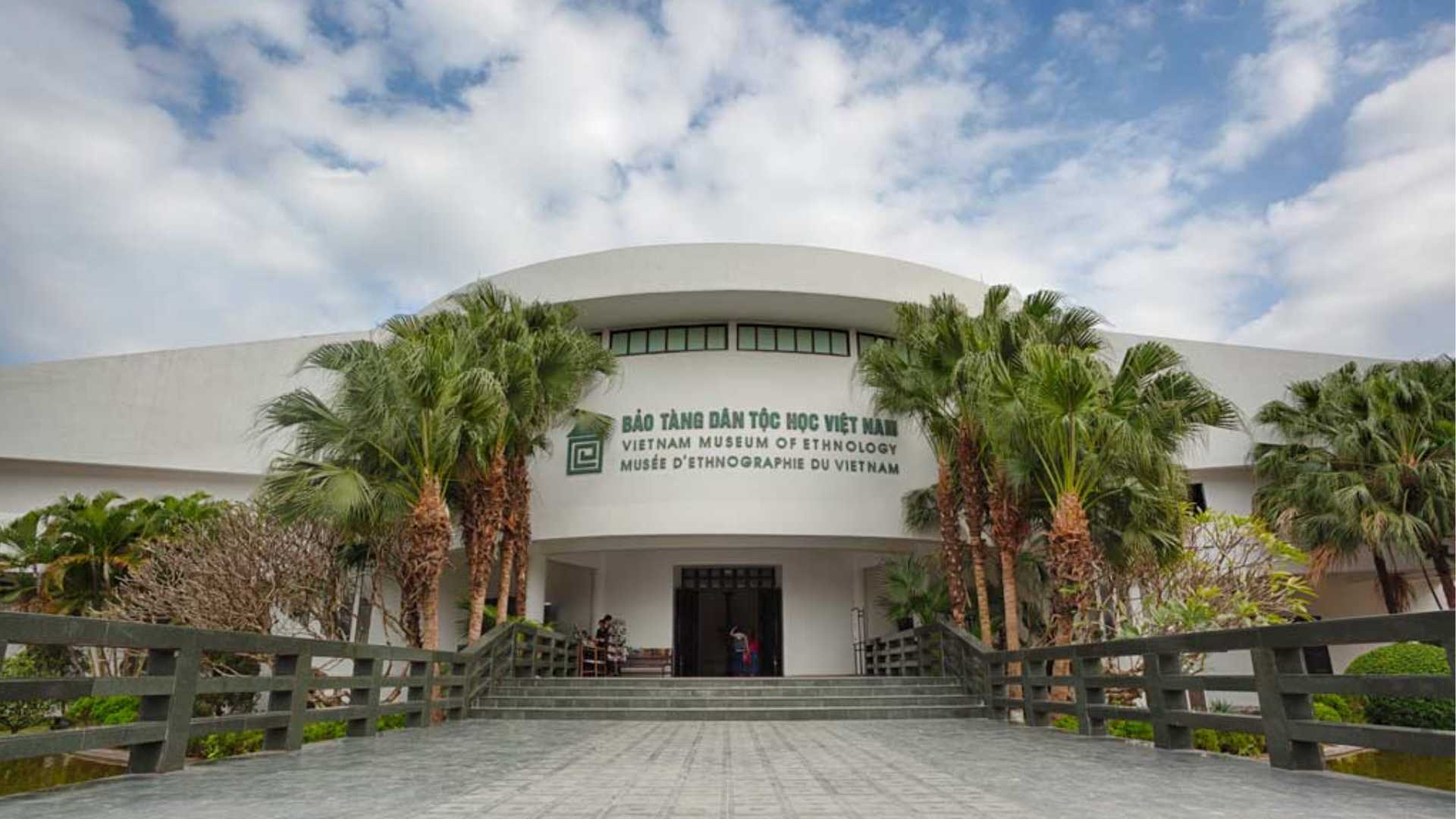
The Museum of Ethnography, the result of French-Vietnamese cooperation, is a wonder. The museum is divided into two parts: an exhibition is held inside and the other is outdoors.
Inside, a dozen rooms allow nearly 2,500 objects representing the life and culture of the 54 ethnic minorities of Vietnam to be displayed. Photo exhibitions and small explanatory films retrace the customs, explain weaving, crafts, costumes, and different ethnicities.
Outside, the traditional houses of the different ethnic groups are reconstructed. Bahnar house, Ede house, Tay stilt house and Jorai tomb.
Quan Thanh Temple
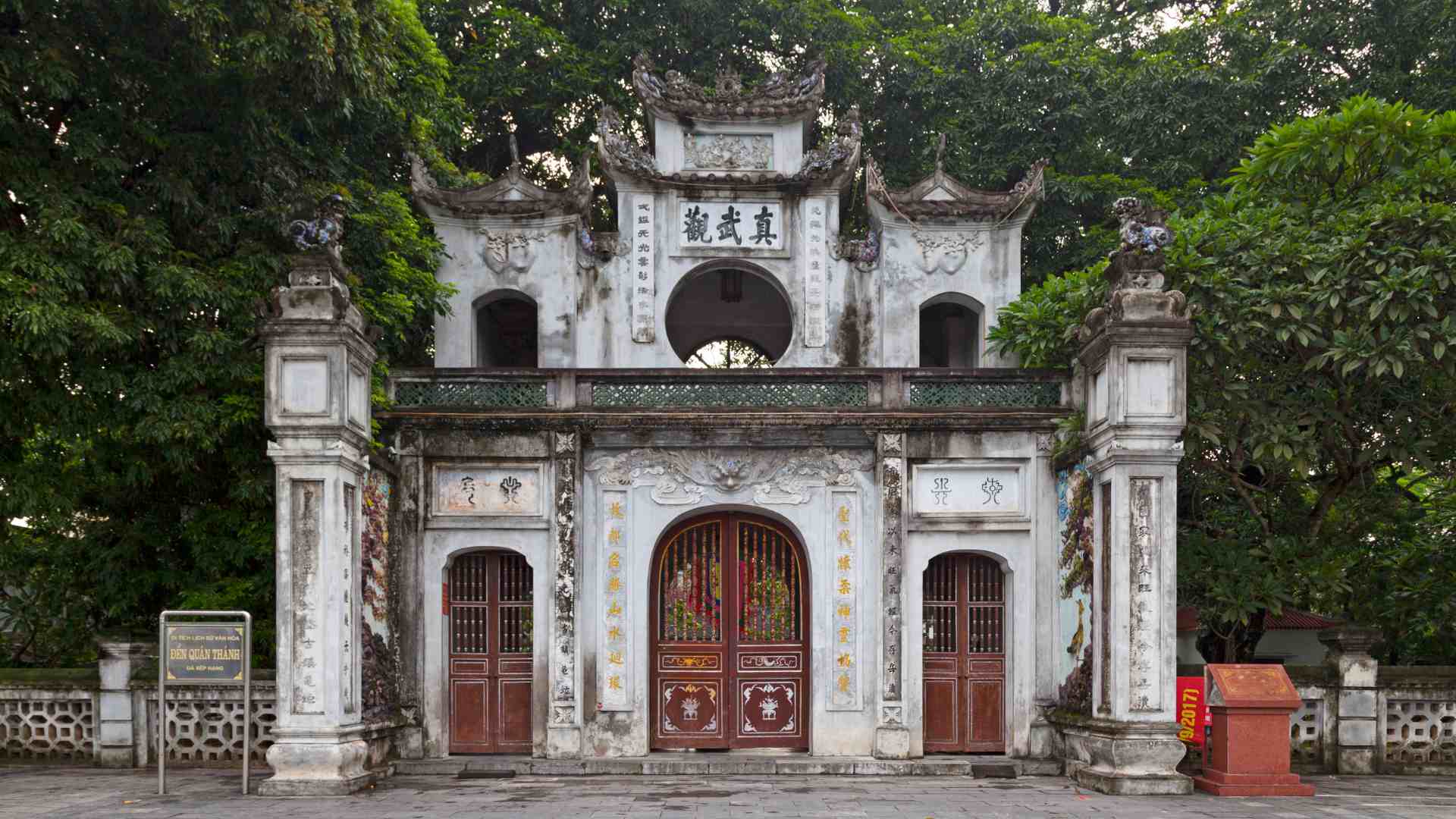
Quan Thanh Temple (formerly known as Tran Vu Temple) is an 11th-century Taoist temple dedicated to Tran Vo, one of the main deities of Taoism, to protect the capital from evil spirits from the north. The large and beautiful shaded courtyard houses a giant banyan tree and the famous bronze statue of Tran Vo.
Tran Quoc Pagoda

Built in the 6th century in Hanoi, this is the oldest pagoda in the city. Particularly beautiful at sunset, it is highly revered by the locals and is nicknamed “Defense of the Fatherland.”
Train Street
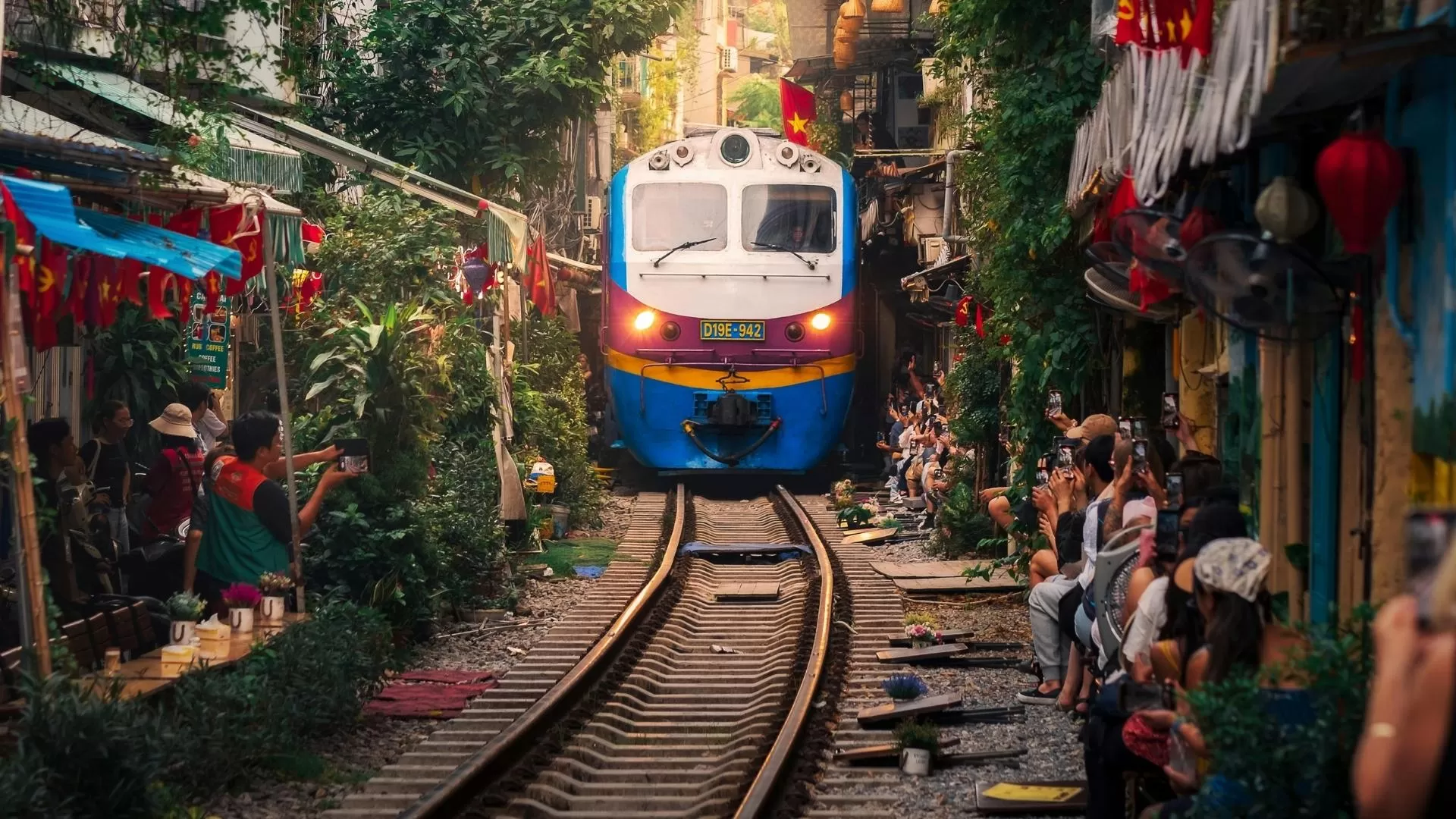
The train that runs from Hanoi to Ho Chi Minh travels along this narrow street, which is closed to cars. Located in the old quarter, it is a surprising attraction! The houses are very close to the tracks, about 1.5 meters away, but small shops and cafes still operate.
As the train passes at regular intervals, they clear the tracks when the train announces its arrival. This surprising and unusual situation has made the street very popular!
The Women’s Museum
This museum honors Vietnamese Women. It is a beautiful representation of women in Vietnam, highlighting their roles both “in times of war” and “in times of peace.” Brave soldiers, they defended their country as valiantly as men. During peacetime, Vietnamese life is portrayed through women, including customs, traditions, family life, etc.
A Lacquer Workshop
Vietnamese lacquer is Vietnam’s great artistic specialty. Your guide will explain all the steps involved in creating a high-quality lacquer, including inlaid mother-of-pearl, eggshells, etc.
The Lake of the Returned Sword
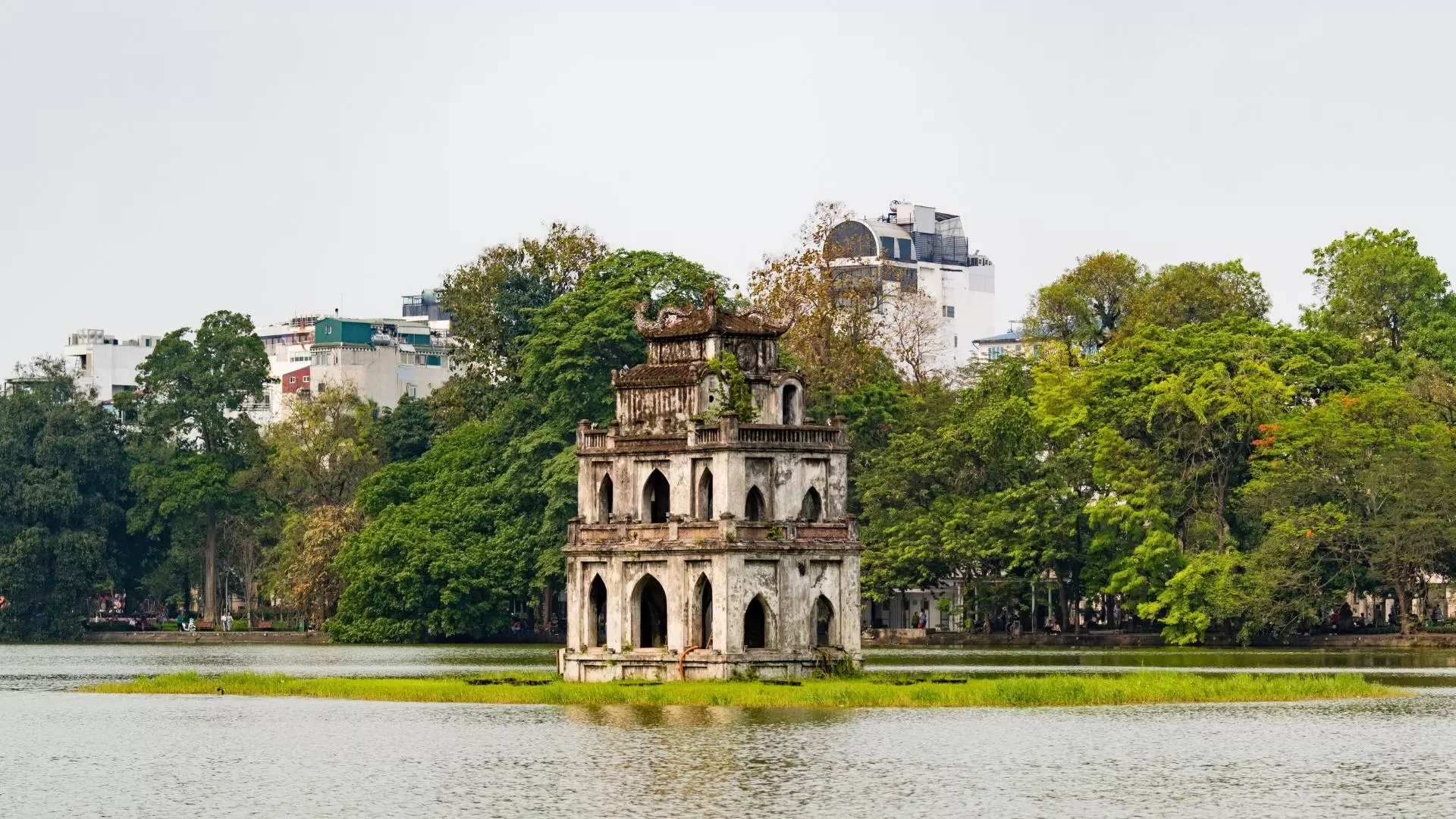
The Lake of the Returned Sword, called Ho Hoan Kiem-Ho Guom in Vietnamese, with the Ngoc Son Temple nearby, has a legend associated with it involving the emperor Ly Thai To, a magical sword, and a giant golden turtle! The Ngoc Son Temple is famous for the Huc Bridge and the Pen Tower (Thap But).
In the heart of Hanoi, this lovely setting, combined with the beauty of lush nature, colorful gardens, and majestic trees, is a true place of life. Early in the morning, Hanoians practice tai chi or yoga, and in the evening, they stroll in the cool air while enjoying ice cream or relaxing on a terrace with a Hanoi beer.
Dong Xuan Market
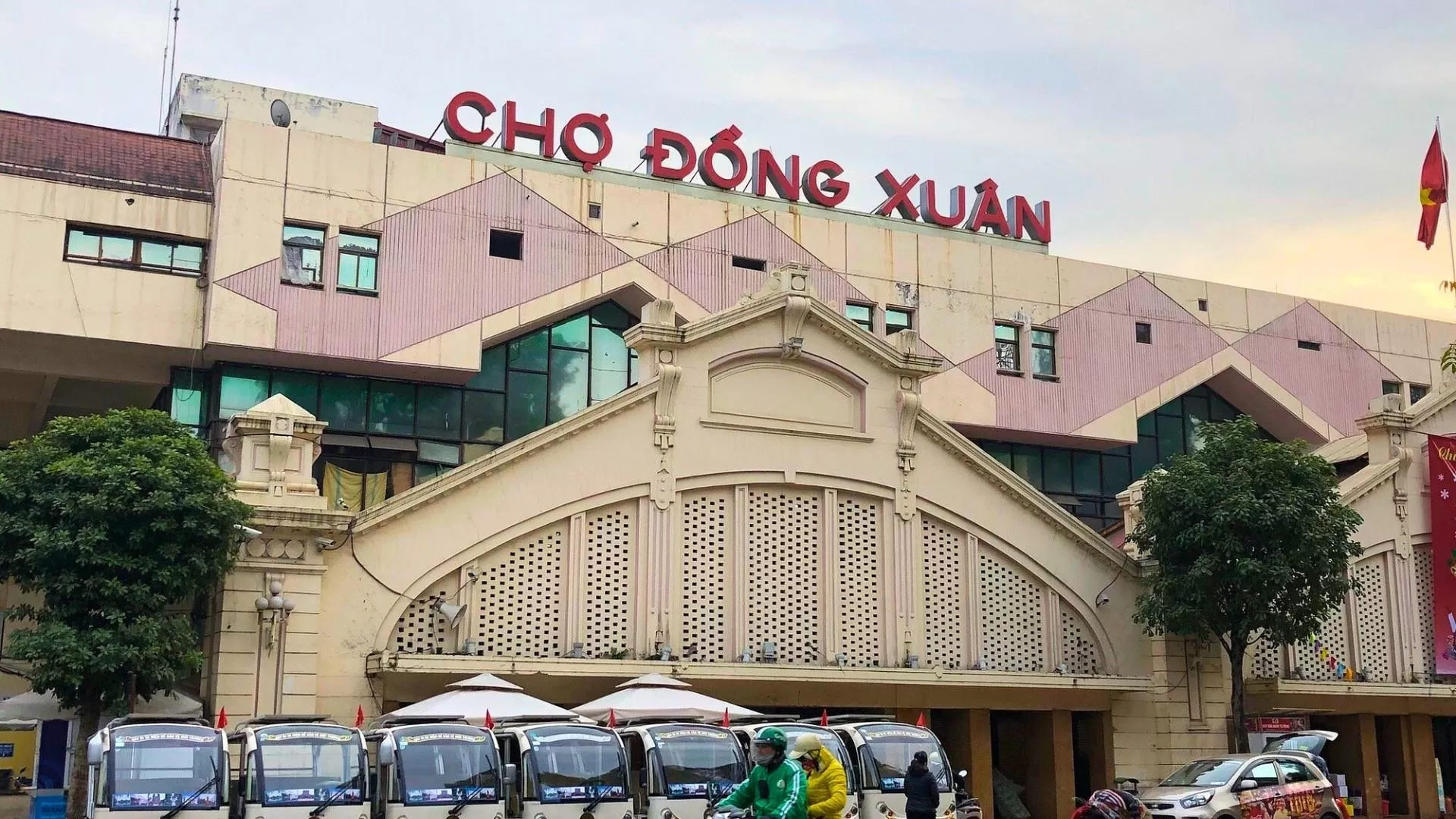
Founded in 1889, the Dong Xuan covered market occupies four floors in the north of Hanoi’s old quarter. It is the largest covered market in Hanoi, selling fresh produce, souvenirs, accessories, clothing, and household appliances. Local exotic dishes are also served there at very reasonable prices.
The Ancient House of Ma May
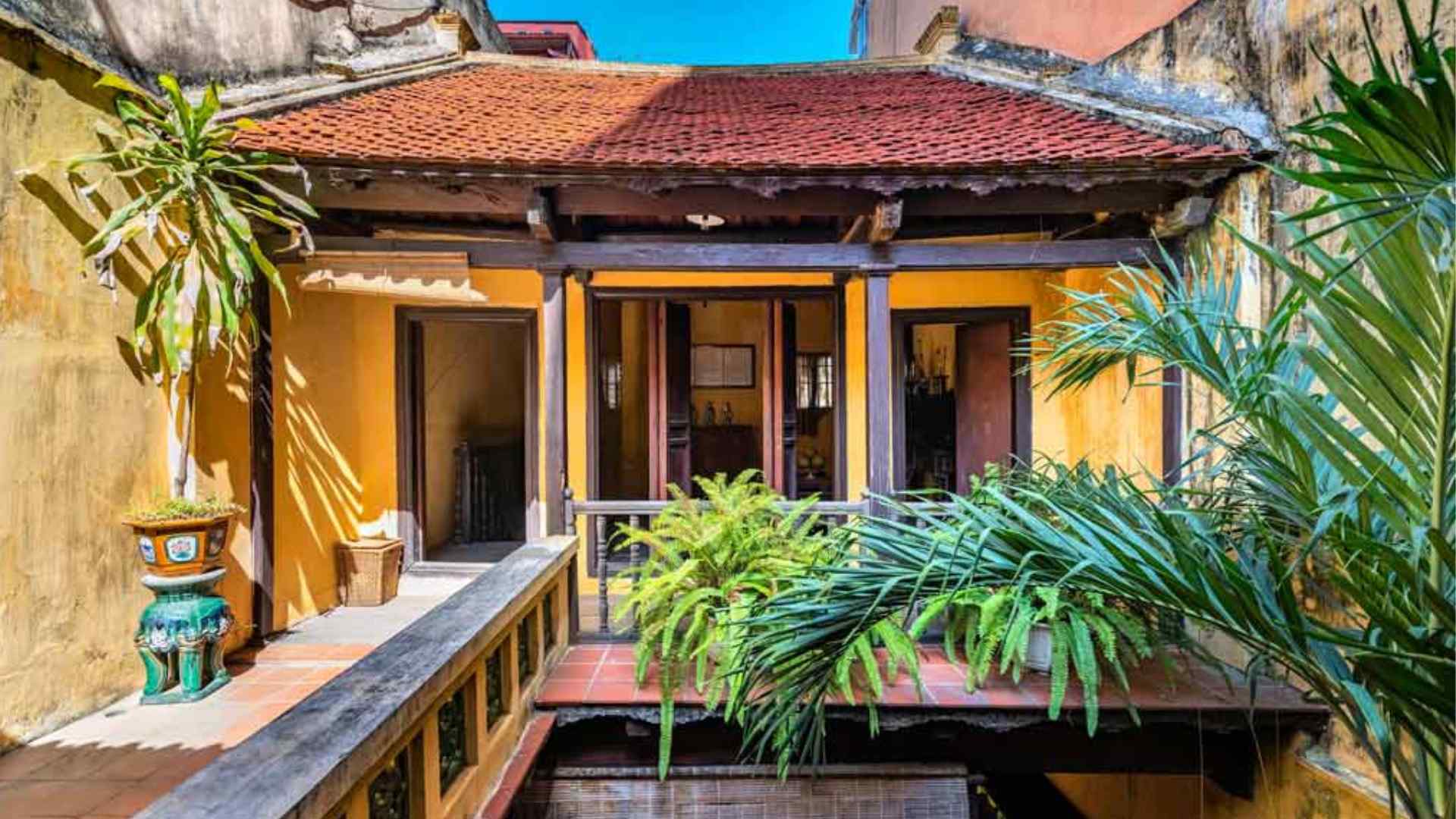
Located at 87 Ma May Street, this 19th-century traditional Vietnamese architecture house has all the features of old tube houses in Hanoi where people lived and did business. On special occasions such as national holidays or the Mid-Autumn Festival (the 15th day of the lunar calendar in August), this house hosts performances of traditional arts of Hanoi.
St. Joseph’s Cathedral
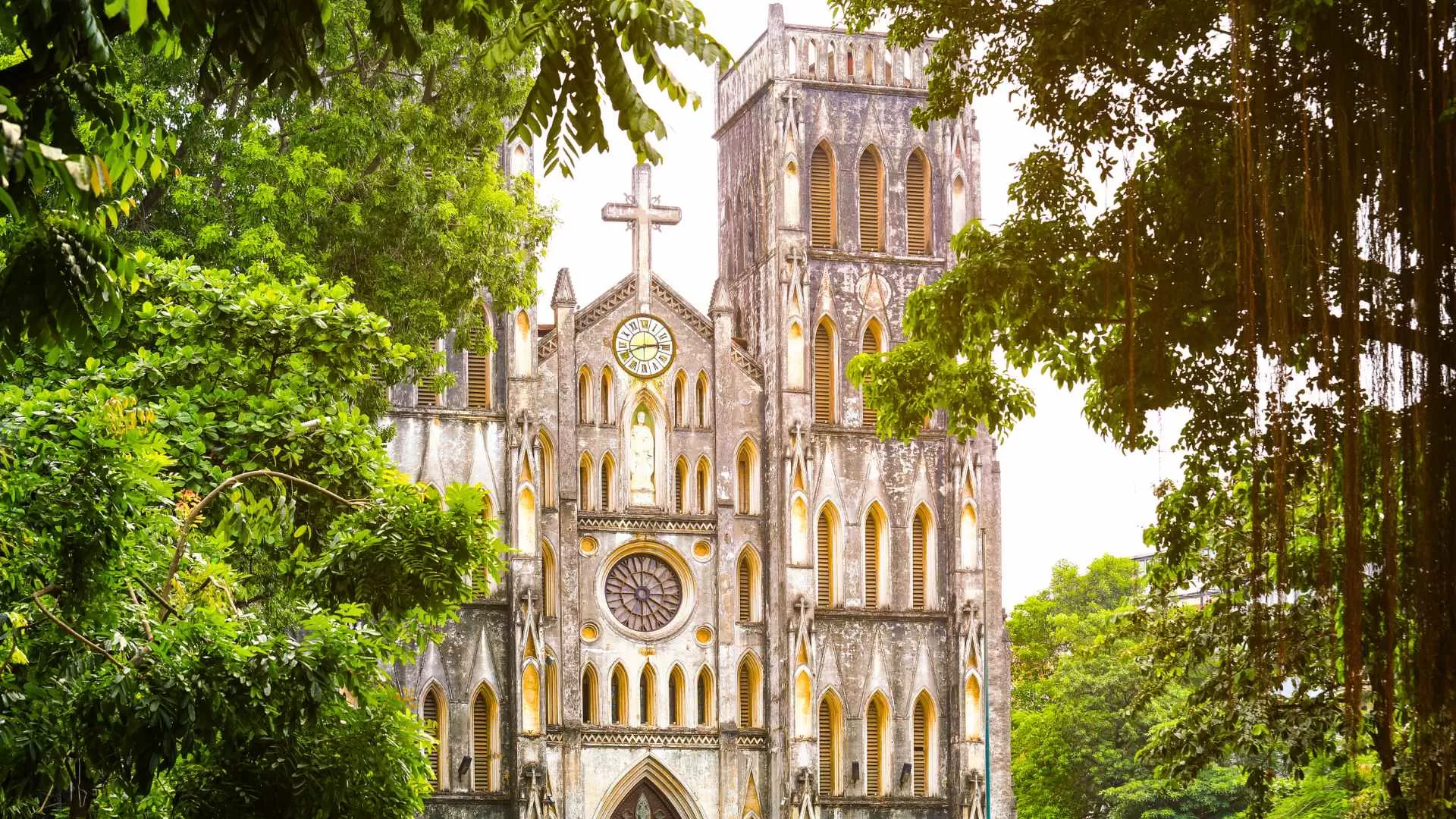
Built in the 19th century by French colonists on the site of the Bao Thien Pagoda, which was built during the Ly Dynasty. A true example of neo-Gothic architecture, it is one of the must-visit monuments in Hanoi.
Long Bien Bridge
The Long Bien Bridge, also known as the “Paul Doumer Bridge,” was constructed between 1899 and 1902 and designed by Gustave Eiffel, the same architect who designed the Eiffel Tower in Paris. This bridge crosses the Red River and connects the two districts of Hoan Kiem and Long Bien. At night, the bridge is illuminated with colorful lights.
Bach Ma Temple
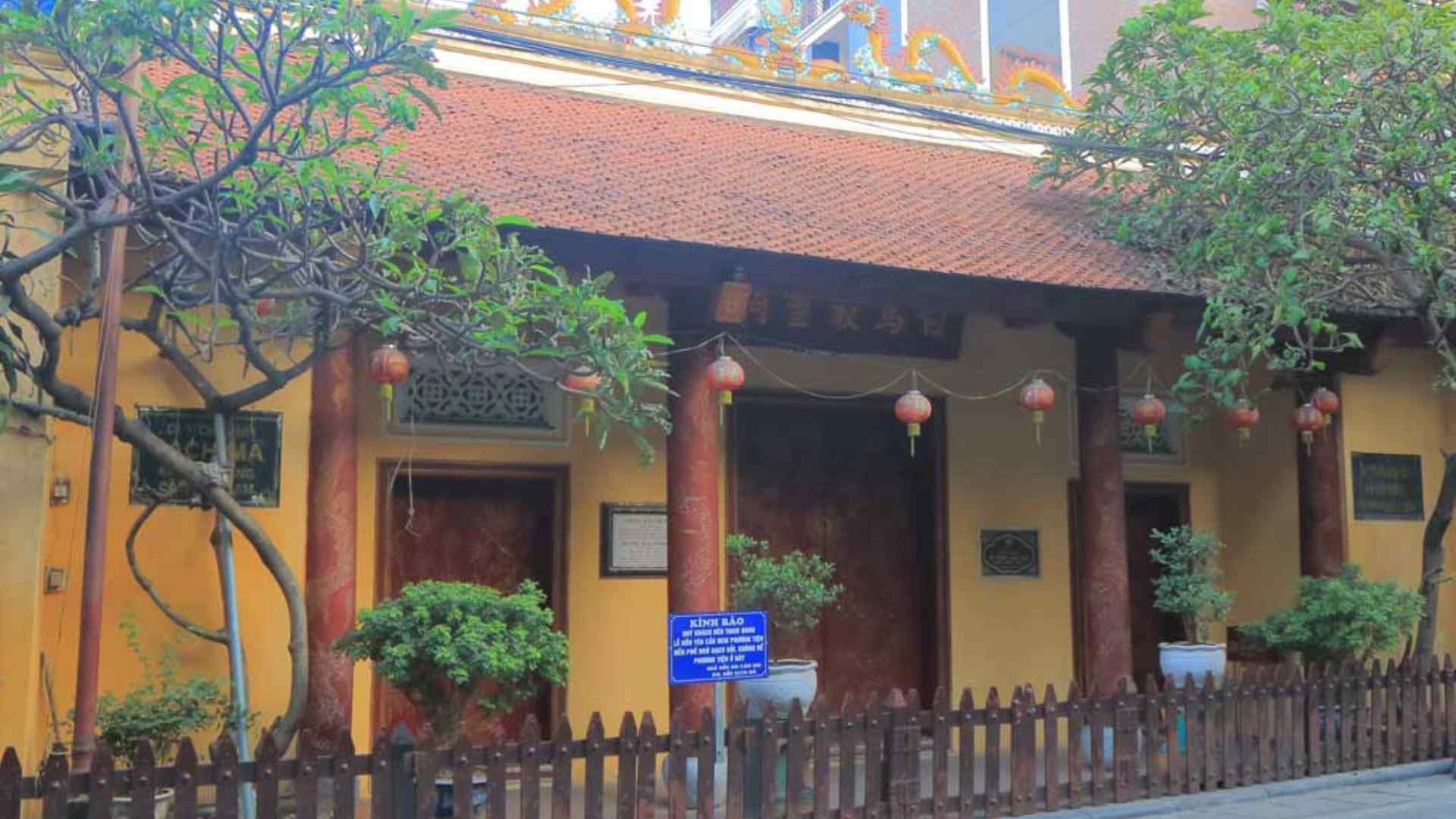
Also known as the “White Horse Temple.” It is the oldest Buddhist temple in Hanoi, built in the 9th century by King Ly Thai To in honor of a white horse (Bach Ma). Beautiful ancient wooden doors open to reveal a rich interior decoration of red lacquered wood, including a magnificent red funeral palanquin and a sanctuary dedicated to Confucius.
National Museum of Vietnamese History

Located in the heart of Hanoi near the Opera and Hoan Kiem Lake, the National Museum of Vietnamese History was established in 2011 by merging the National Museum of Vietnamese History and the National Museum of the Vietnamese Revolution. It houses a large collection of precious objects and documents covering the period from Dong Son until the declaration of Vietnam’s independence in 1945.
Vietnam Military History Museum
The Vietnam Military History Museum, located in Hanoi, is one of the country’s most important museums, showcasing Vietnam’s long struggle for independence and defense. Established in 1956, it features a vast collection of artifacts, including weapons, maps, photographs, and even captured aircraft and tanks. The museum offers visitors a deeper understanding of Vietnam’s military past and resilience throughout its history.
Hoa Lo Prison
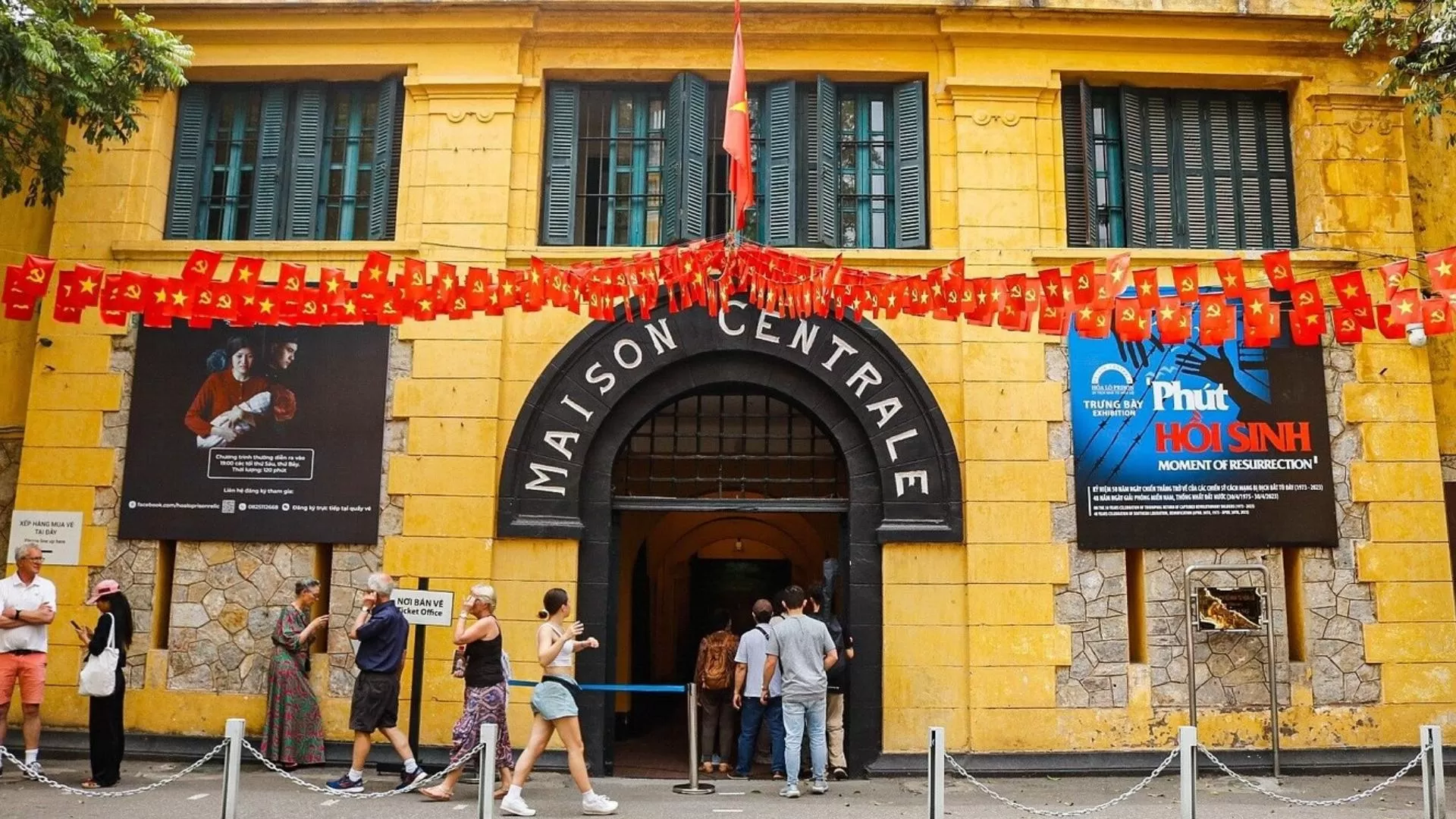
Hoa Lo Prison is one of the darkest chapters in the country’s history. It was built by the French in 1890 and became a symbol of their repression of the Vietnamese population during the colonial period.
During the Vietnam War, Hoa Lo Prison also housed American pilots, including John McCain.
Hanoi Opera House
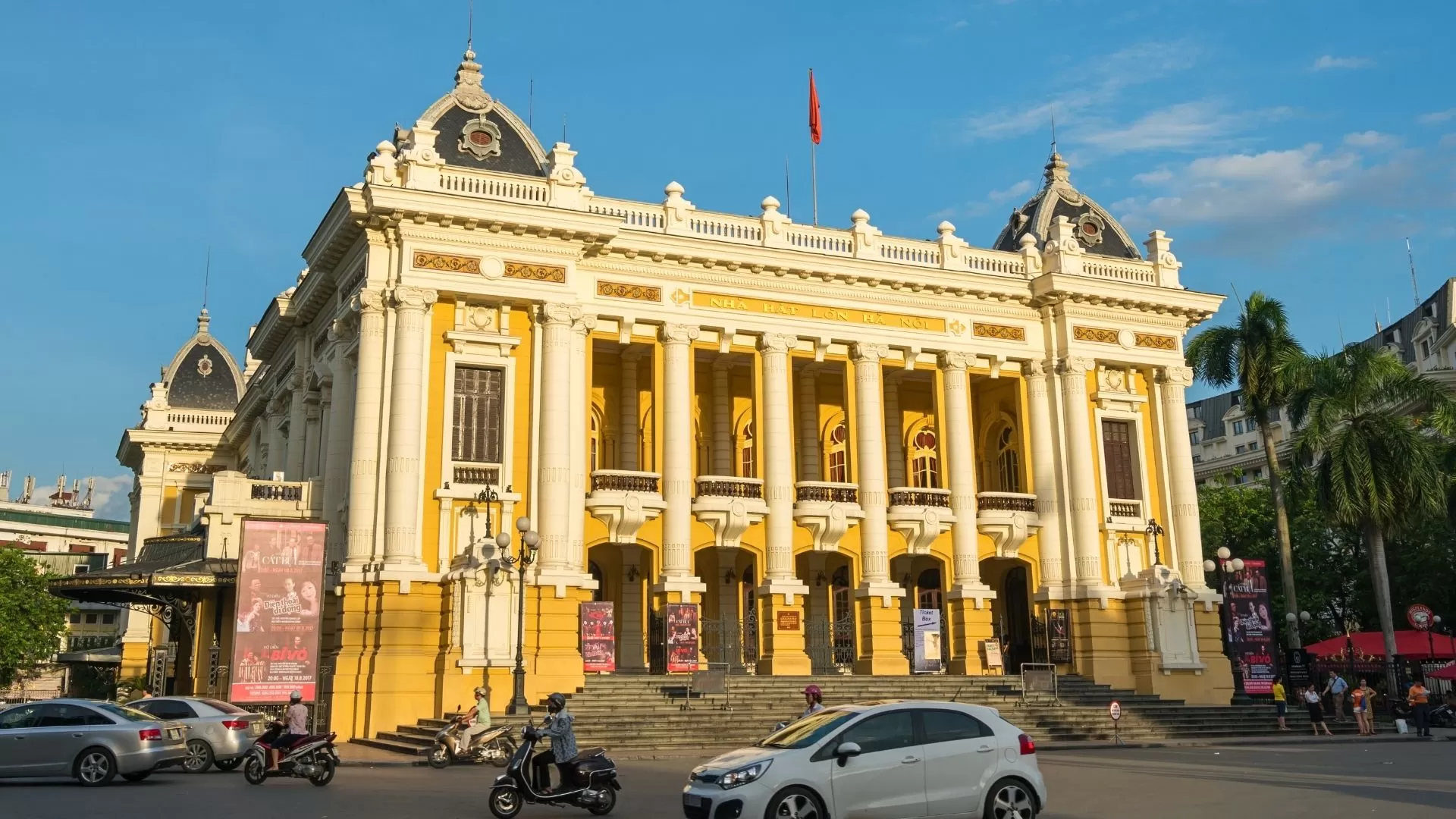
Located near Hoan Kiem Lake in Hanoi, the neoclassical Hanoi Opera House was built in 1911 by the French and imitates the Opera House in Paris in its structure and interior spaces. Various performances are held there, including the popular “My Village” show.
Trang Tien Plaza
This elegant French architecture building was constructed in 1901 and renovated in 2013. Trang Tien Plaza is a high-end shopping center that houses many famous international brands such as Dior, Cartier, Bvlgari, Louis Vuitton, and more.
The night market
Every weekend from 8:30 pm, the area becomes pedestrian-only. It stretches for 3 km from Dong Xuan Market, along Hang Dao Street to Hoan Kiem Lake. Local products are inexpensive and attract a large crowd.
The surroundings of Hanoi
We honor our traditional villages that reflect our culture and our craft villages dedicated to our varied and captivating handicrafts. You will be taken behind the scenes where the artists at work will amaze you. Patience, skill, creativity, originality – an entire universe to educate and charm you.
Discovery of the traditional cultural village of Dong Ho painters
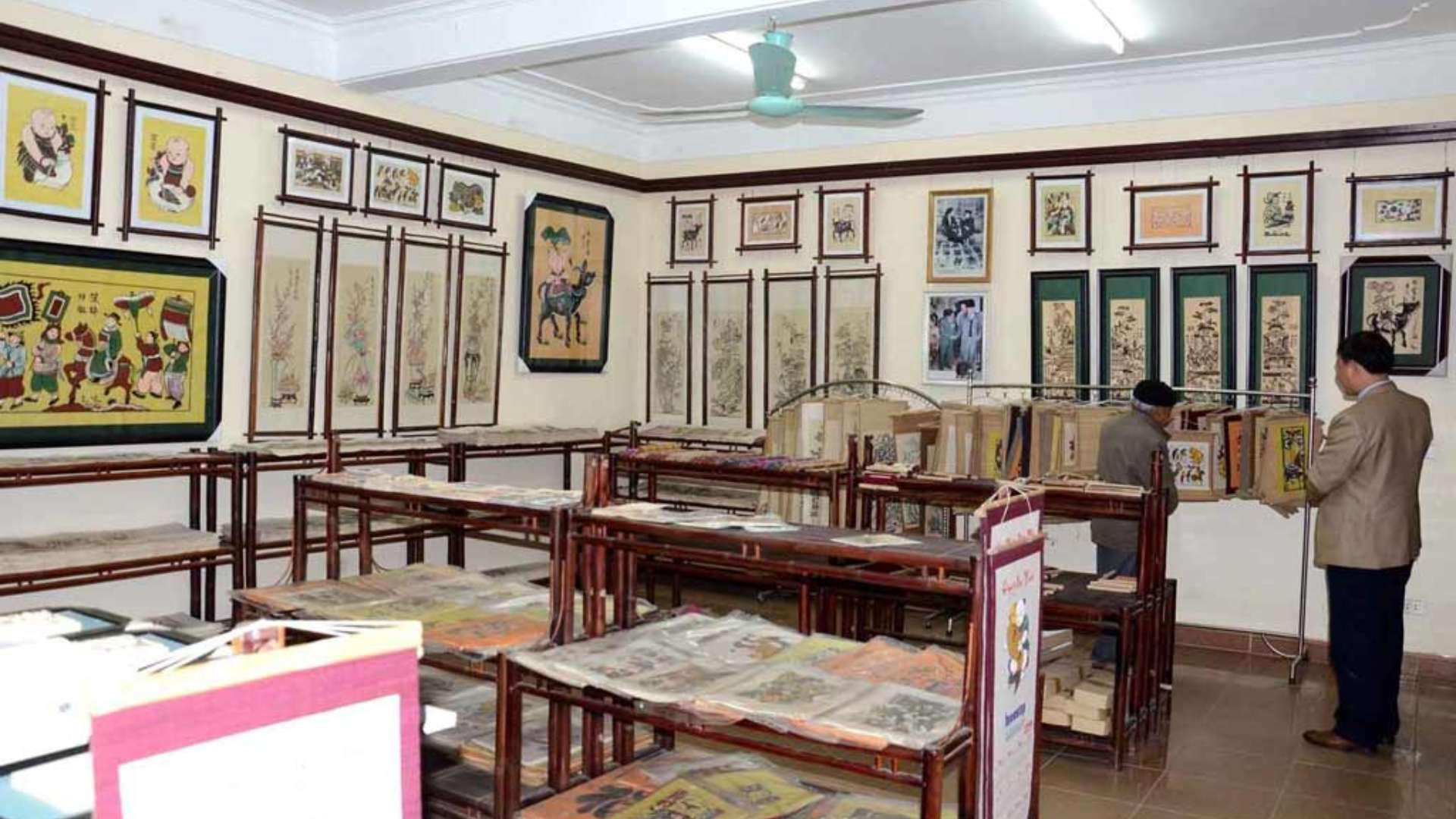
This is where prints, a cultural symbol of a very popular art in Vietnam for centuries, are produced. They have long been part of the life of the Vietnamese people and serve as decoration in households during Tet.
Prints depict scenes of ordinary life, landscapes of Vietnam, seasons, symbols of prosperity, fabulous animals drawn from mythology, genies from popular beliefs or divinities: dragons, unicorns, phoenixes, Buddha and his disciples, etc. The prints are made with wood and on a specific paper also made here from the Ne tree. The paint is organic and applied to the wood before being pressed onto the paper. The process is repeated with different colors.
Discovery of the traditional cultural village of Dinh Bang
Rich in historical and cultural relics, including those of the Ly dynasty. Typically Vietnamese, this show consists of songs accompanied by traditional musical instruments. A vocal art that is a true cultural heritage. Songs with sentimental lyrics, full of emotion. The richness of the melodies, the vocal qualities of the singers, their elegance, are the components of this original and typical show of Vietnamese culture.
Discovery of the craft village of Bat Trang
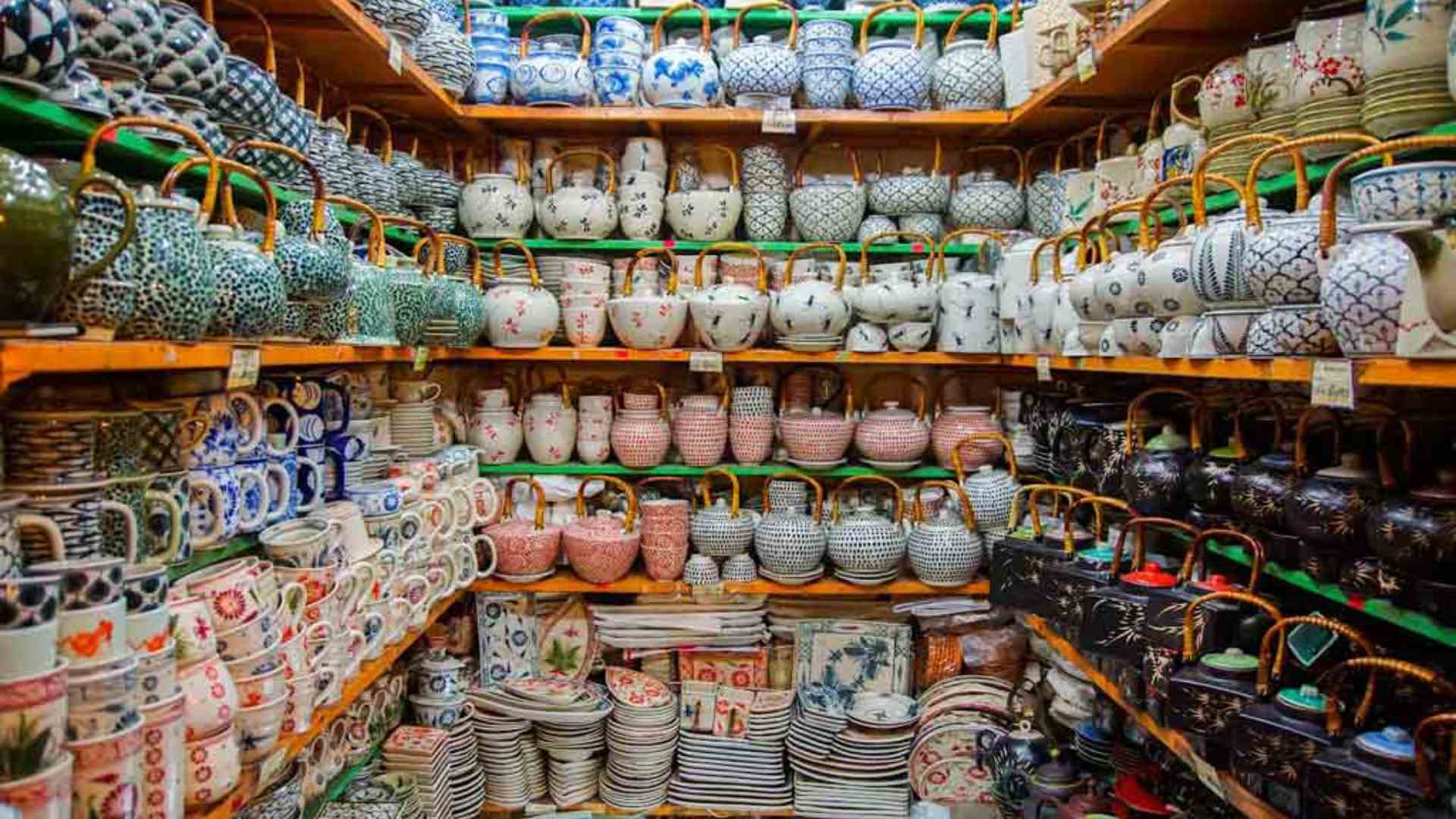
You will travel through Bat Trang in an ox-drawn cart. Bat Trang is located on the left bank of the Red River, about fifteen kilometers from Hanoi. It has long been renowned for the quality of its ceramics.
From traditional style to modern, sleek, and very design lines, Bat Trang will satisfy your curiosity, and you will be amazed to discover with what precision the painters decorate the objects. It was in Bat Trang that the artist Le Minh Ngoc produced a vase of 3.20 meters high and 0.94 meters in diameter, 170 kg, registered in the Guinness of Vietnam in 2002.
Discovery of the Dong Ky craft village
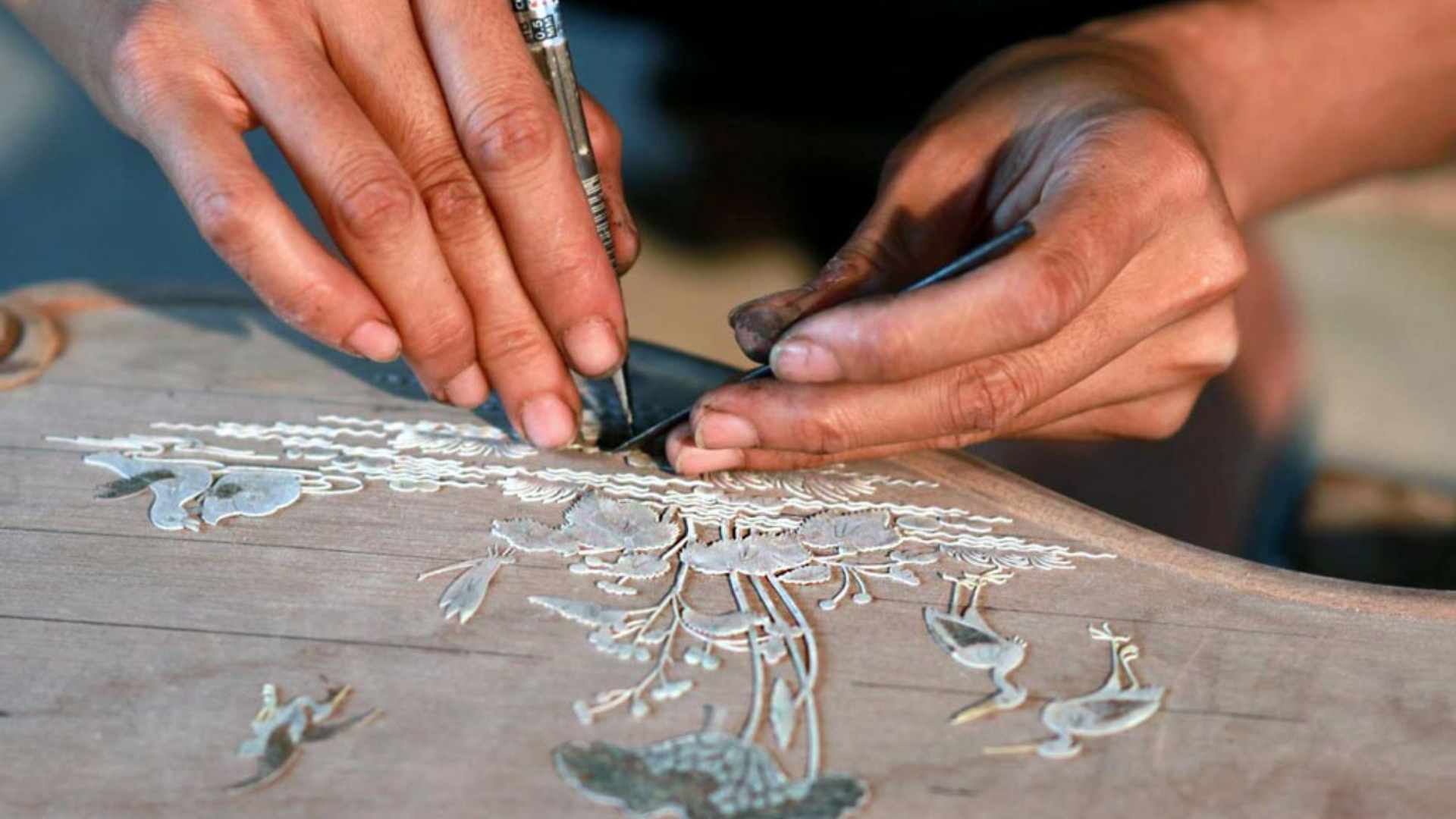
This village has always been renowned for its fine wood carving work on ebony. The main activity of this village is the production of carved furniture with mother-of-pearl inlays and considerable-sized decorative paintings.
Carved and sanded shells are meticulously inlaid to depict scenes of flowers, lovely landscapes with rivers and small bridges, characters, and animals, demonstrating the artistic sense, meticulousness, and patience required for such artistic activity. You will be conquered!
Discovery of Kieu-ky craft village
Quy are extremely fine gold leaves used for artistic purposes, either on religious statues, inlaid on lacquer objects, on paintings, or on frames gilded with fine gold. You will discover the various laborious steps before being able to meticulously use the light-as-air thin gold leaf sheets, which are mostly applied with a brush. This informative visit will fill you with admiration for this particular craft.
The Perfume Pagoda
Departure for a day trip to the Perfume Pagoda, a complex of pagodas and a Buddhist pilgrimage site located about 70 km southeast of Hanoi. Upon arrival, board a sampan for a small cruise on the Yen River to the Thien Tru Pagoda. During your walk, the boat stops to visit the Den Trinh temple and some pagodas. Upon arrival, have lunch before climbing a hill to reach the Giai Oan Pagoda and the Huong Tich Cave.
Hanoi Voyages offers Vietnam tours for the best experience |
Hanoi Voyages provides a diverse range of exciting Vietnam tour packages customized to suit your preferences
If you want to explore Hanoi on your private tour, Hanoi Voyages also offers tailor-made itineraries to create the perfect trip for you. Contact us now! |
What to do in Hanoi
If you’re heading to Hanoi and wondering how to make the most of your time, you’re in for a treat.From wandering through chaotic markets to sipping egg coffee on a quiet rooftop, here’s a list of the top things to do in Hanoi to truly experience the soul of the city.
Take a cyclo ride
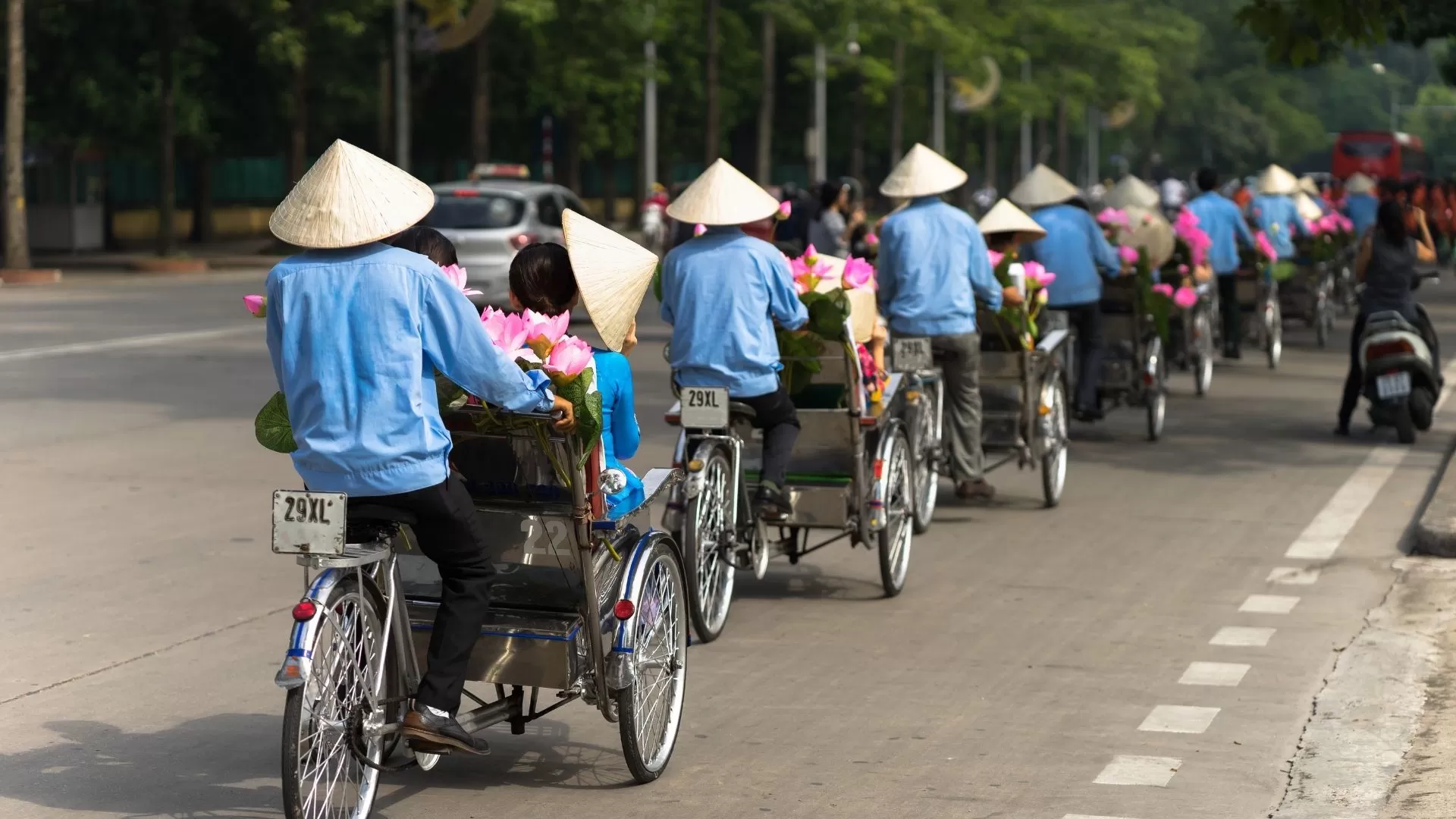
Take a ride to explore Hoan Kiem Lake and its legend, Ngoc Son Island and its beautiful temple in the middle of the lake. Navigate the bustling streets of the famous and fascinating “Old Quarter of the 36 corporations” and visit the famous Silk Street (Hang Gai). If you continue your trip to Vietnam to the central regions of Hue and Hoi An, you will also have the opportunity to discover the city by cyclo.
Attend a cooking workshop
Follow us to the end of a small alley to an oasis of greenery where little birds chirp and fruit trees and flowers abound. Here, the love for the beautiful and delicious traditional cuisine of Hanoi is embodied. The hostess, accompanied by the women of the family, will guide you in preparing a complete menu that you will then enjoy in the charming setting of this lovely home.
Flash flavor
Hanoi has just received an award in honor of its culinary specialties. If you enjoy tasting the culinary specialties of Hanoi and our country and want to fully immerse yourself in Vietnamese ambiance, we will be pleased to take you to one of our favorite establishments.
Don’t forget to indulge in delicious steamed or grilled seafood, consumed in a local and relaxed atmosphere!
Pho (beef noodle soup): A traditional Vietnamese soup consisting of broth, rice noodles, herbs, and meat
Cha Ca (La Vong fried fish paste): A Hanoi specialty, where fish is marinated, grilled, and then fried with dill and spring onions, often served with rice noodles and various herbs.
Bun Cha (grilled pork with rice vermicelli): Grilled pork patties and pork belly served over a bed of rice vermicelli noodles with fresh herbs and a dipping sauce.
Banh Da Cua (crab noodle soup): A northern Vietnamese dish featuring wide, flat noodles in a rich broth made from crab, along with tomatoes, fried tofu, and sometimes other seafood or meat.
Mien Luon (vermicelli soup with swamp eels): A soup made with glass noodles and fried or sautéed swamp eels, garnished with herbs and often served with a lime-based sauce.
Banh Com (glutinous rice cake): A traditional Vietnamese cake made from green rice flakes and mung bean paste, usually enjoyed during the autumn and as a gift during wedding ceremonies.
O Mai (dried fruits): A variety of dried fruits that are often sweetened or salted, sometimes with added spices
Egg coffee
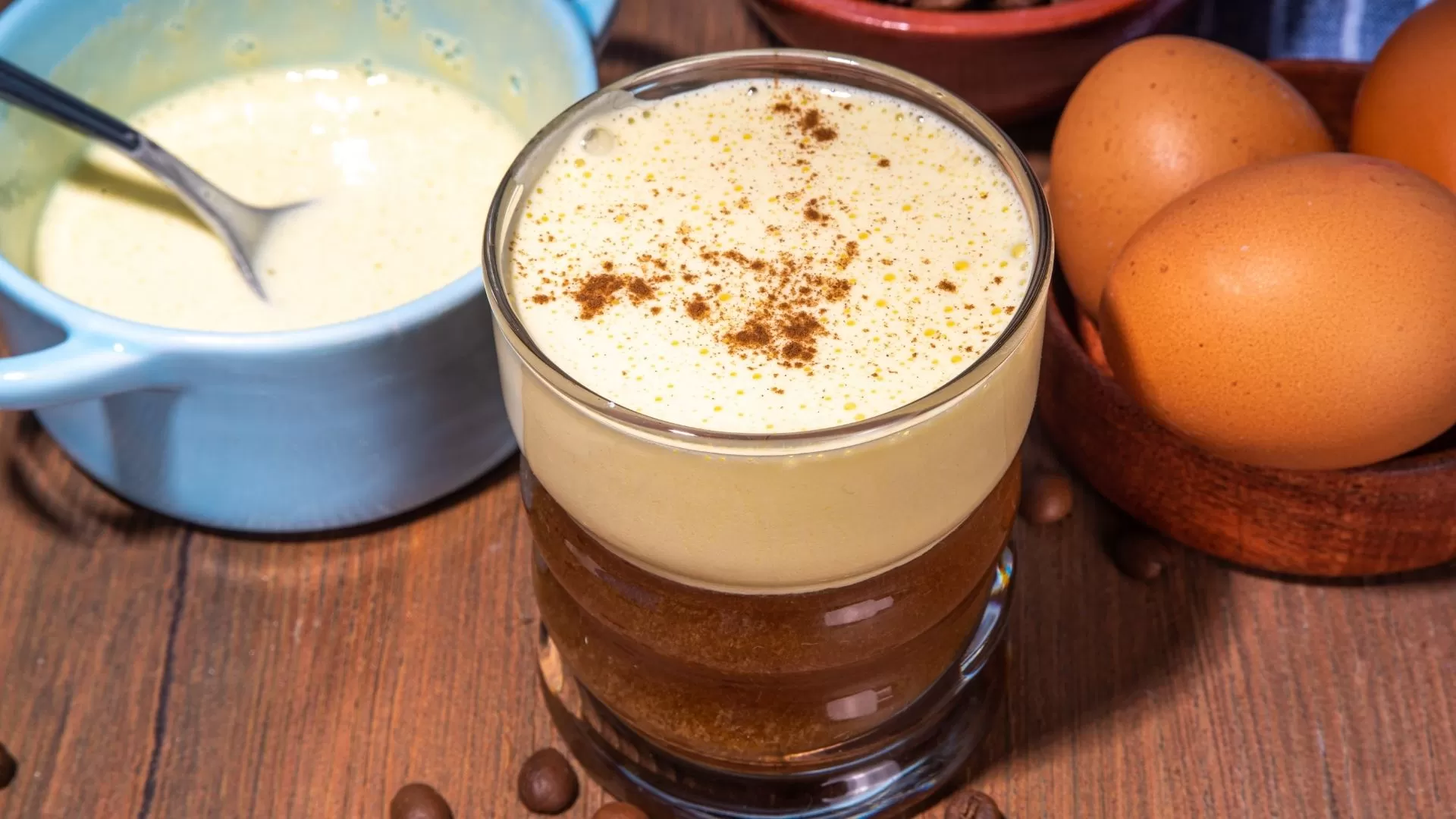
This drink is a specialty unique to Hanoi that originated in the 1950s. The story goes that at the time, due to a lack of milk, the owner developed a recipe based on eggs. And the success was there! It is a hot drink where the aroma of coffee and the finesse of the egg-based preparation mix harmoniously.
Enjoy a bowl of Pho
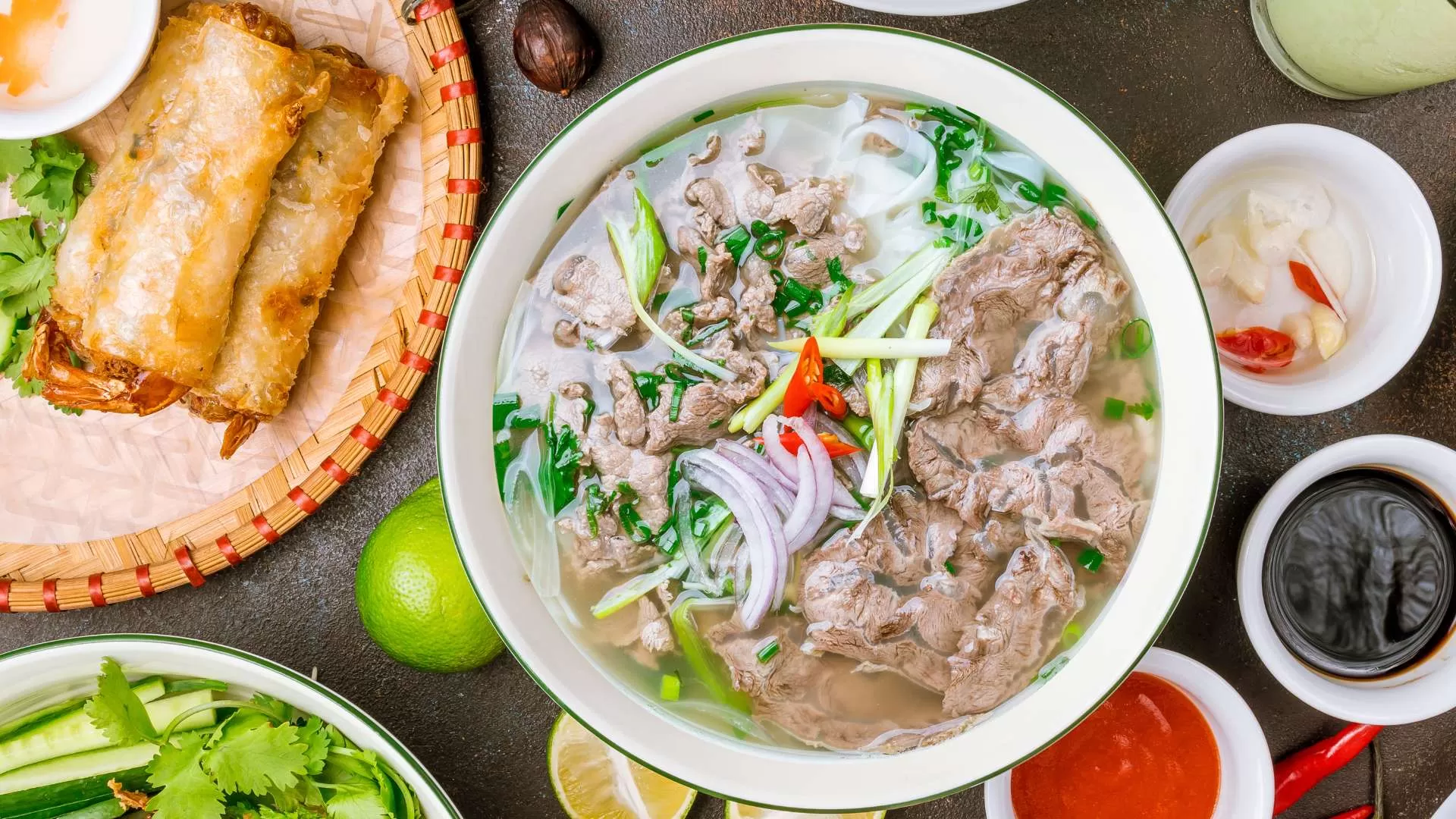
Immerse yourself in Vietnamese culture and visit a traditional and popular street food stall in our address book to discover the unique flavors of the Hanoian specialty called Pho.
Flash Show
The water puppet show
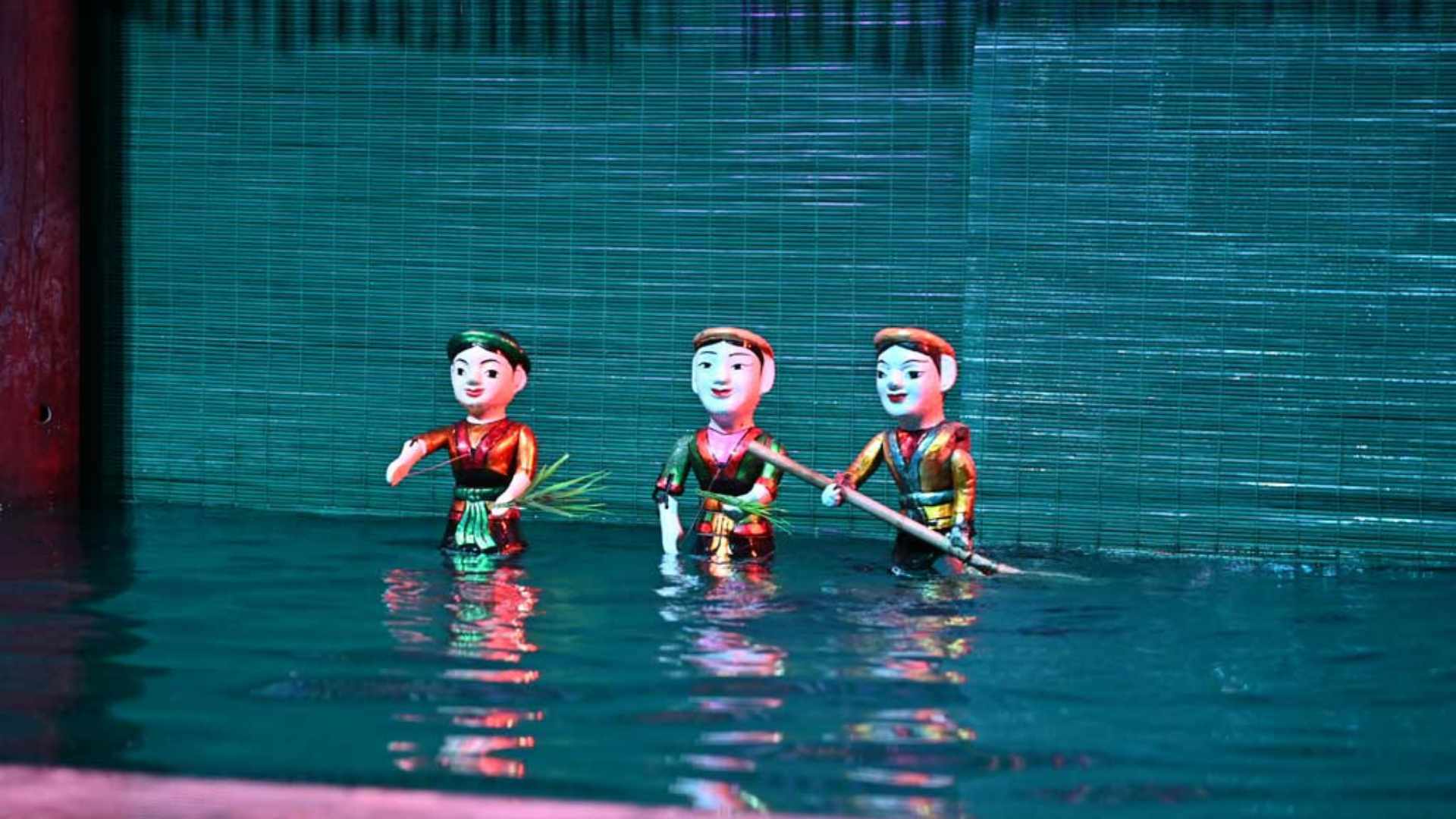
The water puppet show is accompanied by a choir and traditional Vietnamese instruments. It features excellent and talented artists who present a delightful and typical Vietnamese cultural spectacle that showcases the legend of the dragon and various scenes depicting rural life. It is both simple and humorous, beautiful and tasteful, and uniquely local. It is definitely worth seeing!
“My Village” Vietnamese circus show
The “My Village” Vietnamese circus show is a 60-minute performance full of gentle and emotional acts. It is an unprecedented and breathtaking show that features an acrobatic troupe performing on giant bamboo poles to the rhythm of live tribal music. This show has been recognized as a cultural heritage by UNESCO.
Meet a calligraphy master
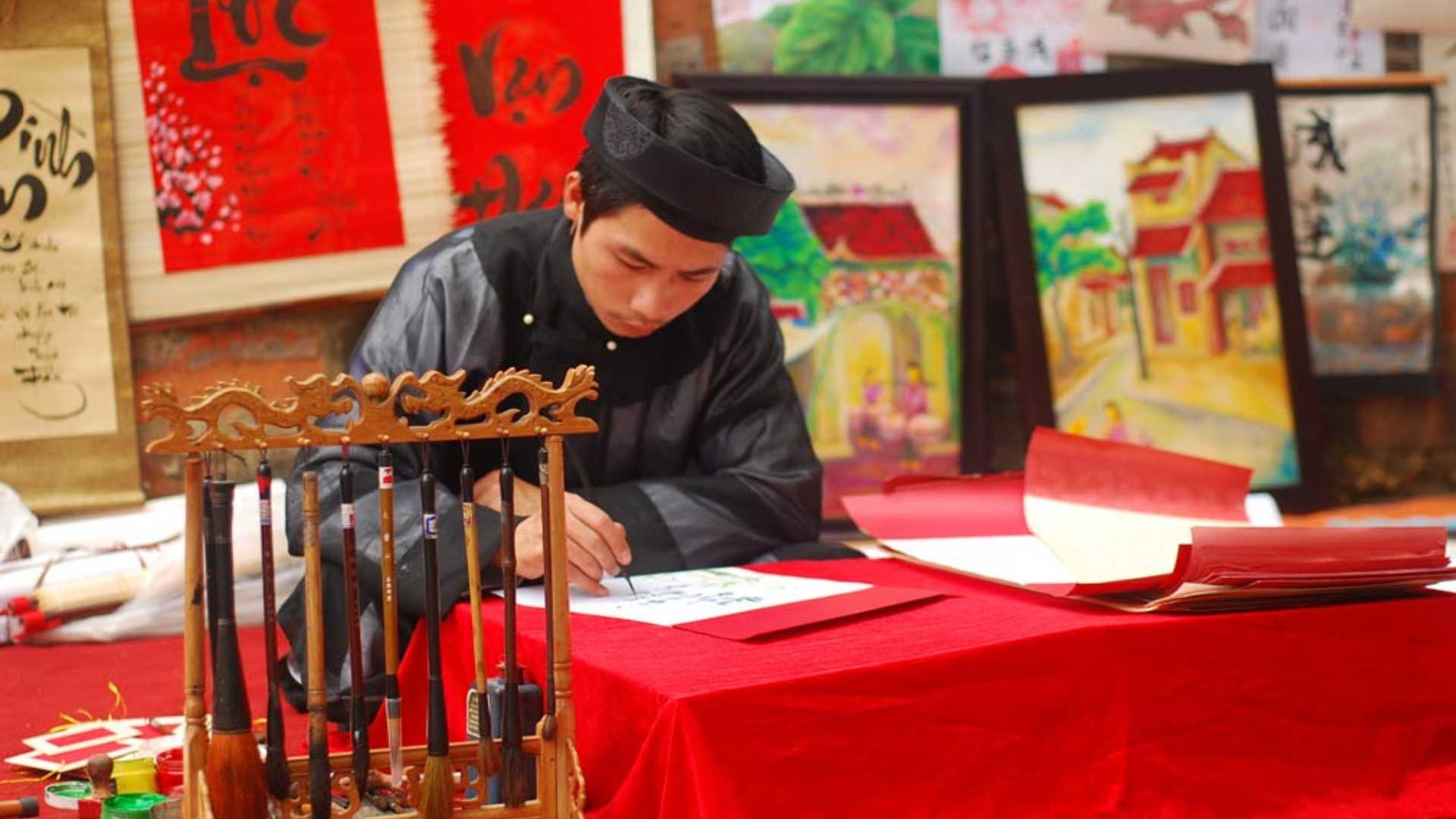
Calligraphy, or Thu Phap in Vietnamese, is the art of forming handwriting characters beautifully. At the Temple of Literature, a private calligraphy class organized by Hanoi Voyages offers an opportunity to meet a professional calligraphy master and learn about this exceptional art. You can create your unique piece of calligraphy art to take home as a souvenir of your Vietnam adventure.
Go shopping
Hanoi offers a mix of colorful boutiques, second-hand stores, and street markets. In the Old Quarter, you’ll find silk, handicrafts, and souvenirs, while Dong Xuan Market is perfect for bargain hunting. Fashion shops also provide great options for both adults and children at attractive prices.
Spas and beauty institutes
Relax after sightseeing at Hanoi’s spas, where you can enjoy traditional massages, herbal baths, or facials at affordable prices. Combining local wellness techniques with modern care, these spots are ideal for recharging body and mind.
Dive into Hanoi at night
At night, Hanoi reveals another side of its personality and offers various activities to do alone, with family, or friends. When the sun goes down, “bia hoi” is a safe haven for beer lovers. This drink is served unlimitedly during meals and allows everyone to quench their thirst at a low cost.
Afterward, bars and nightclubs open their doors. Although the hours are relatively short, the experience of Hanoi nightlife is exceptional.
You can read: Explore Hanoi at night: Top activities you shouldn't miss
When to visit Hanoi?
The northern region of Vietnam, including Hanoi and Sapa, has a wet season from May to September and a dry season from October to March.
In January and February, the temperature ranges from a minimum of 10 to a maximum of 15 degrees Celsius. In the high mountains of Sapa, there can be frost and fog during this time. In March and April, the temperature ranges from 17 to 25 degrees Celsius, and there is relatively little rain with mostly cloudy skies.
In May, temperatures rise to around 20 to 30 degrees Celsius, and beyond that, the temperature continues to rise, with more rainfall, especially in July and August. September is slightly less rainy. In October and November, the temperature decreases to around 25 degrees Celsius, and the rainfall decreases.
How many days to visit Hanoi?
If you're planning a trip to Hanoi, one of the first questions you’ll ask is: How many days do I need to truly experience this city? The answer depends on your travel style, but whether you have just a day or several, Hanoi will leave a lasting impression. You’ll find flexible itinerary ideas for spending 1, 2, or 3 days in Hanoi, including top sights, local tips, and how to make the most of each moment.
Visiting Hanoi in 1 day
Ho Chi Minh Mausoleum.
One Pillar Pagoda.
Quan Thanh Temple & Tran Quoc Pagoda.
Temple of Literature, dedicated to the worship of Confucius and scholars.
Visit to Dong Xuan Market.
Visit to the Women’s Museum: A beautiful representation of Vietnam, its customs, its rituals, its crafts, its history through women and the country’s 54 ethnic groups.
Visit to the Museum of Ethnography, a wonder born out of French-Vietnamese cooperation.
Visiting Hanoi in 2 days
Following the itinerary of visiting Hanoi in 1 day, the 2nd day in Hanoi can be spent visiting the villages surrounding Hanoi.
Traditional Villages (cultural visits) and Craft Villages (for crafts)
Visit the Bat Trang craft village dedicated to ceramics.
Explore the Kieu-Ky craft village known for its production of “gold leaves”.
Discover the Dong Ky craft village famous for carved wood and mother-of-pearl inlay.
Visiting Hanoi in 3 days
Following the itinerary of visiting Hanoi in 2 days, an additional day can be spent exploring the Perfume Pagoda.
The Perfume Pagoda is located 70 km away and takes 2 hours to reach by road.
No matter how long you stay, Hanoi is a city that leaves an impression. Its mix of old-world charm, modern buzz, and unforgettable flavors make it a highlight of any Vietnam itinerary. Whether you have 1, 2, or 3 days, the key is to slow down when you can, talk to locals, try new foods, and let Hanoi’s energy draw you in.
Hanoi is a city full of unforgettable experiences – from the charm of its ancient streets and rich history to its mouthwatering street food and peaceful corners by West Lake. With these 31 ideas, we hope you’re inspired to explore every facet of Vietnam’s thousand-year-old capital.
Looking for a tailor-made, seamless, and truly memorable journey? Don’t hesitate to reach out to Hanoi Voyages. As local experts, we’re here to craft the perfect itinerary and accompany you every step of the way—starting right here, in the heart of Vietnam: Hanoi.
👉 Discover Hanoi your way with Hanoi Voyages – Contact us today and let the journey begin!
Dream about your trip to Asia, in private
We are here to make it happen with youFREE QUOTE, WITHOUT OBLIGATION

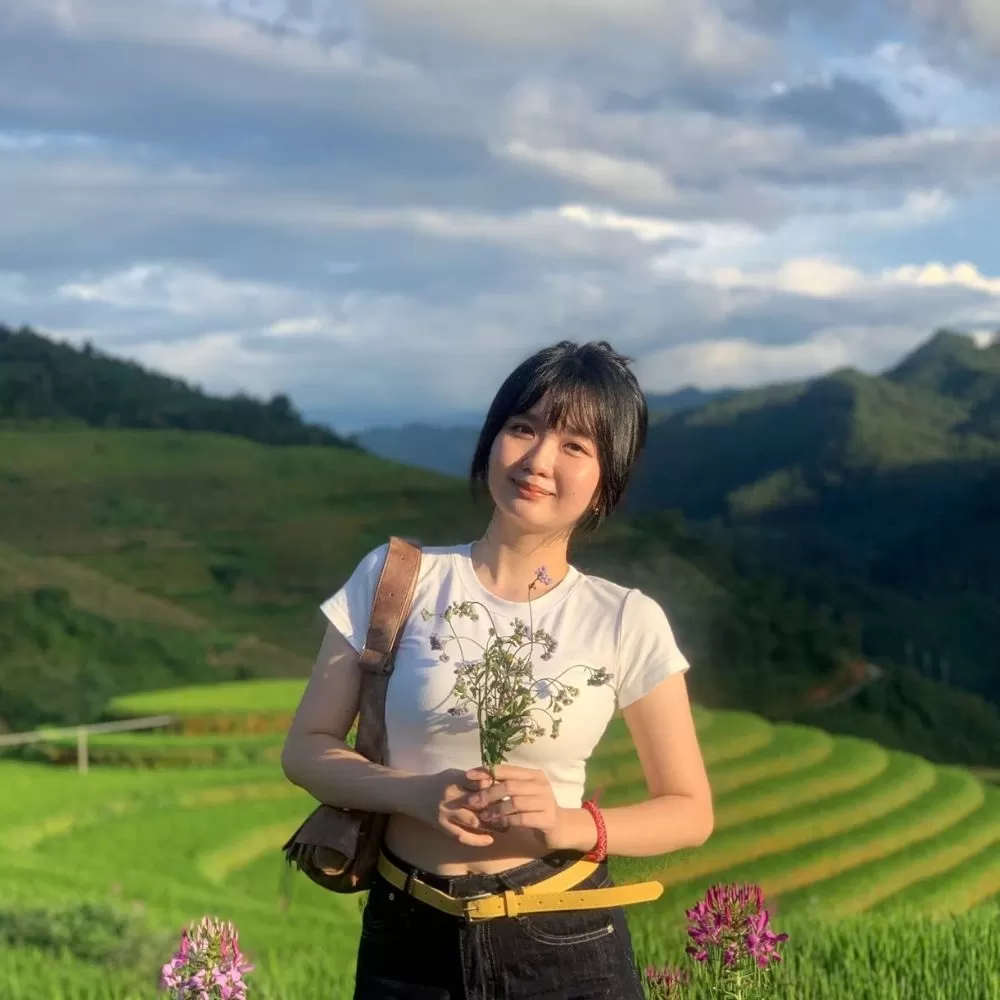
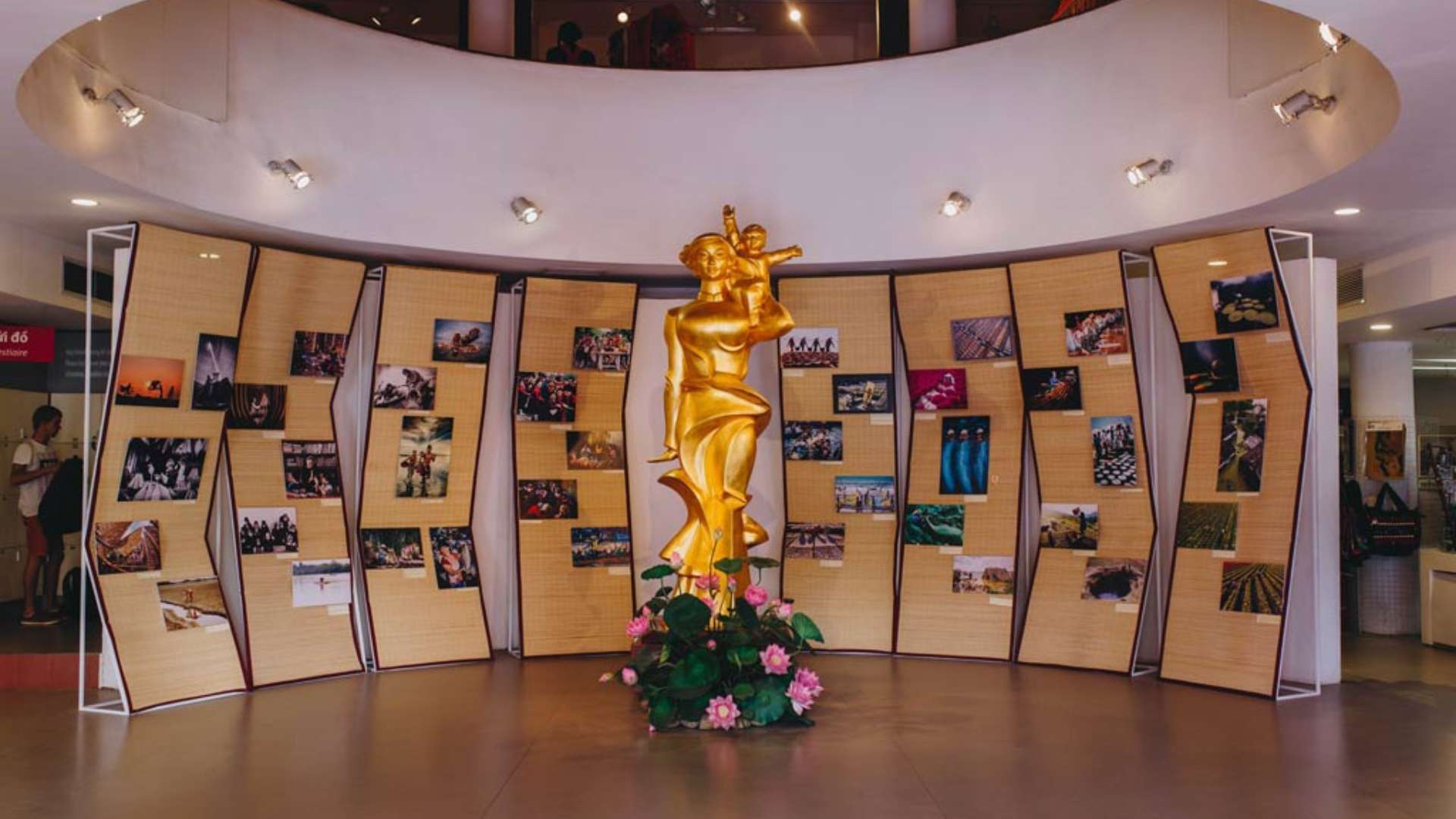





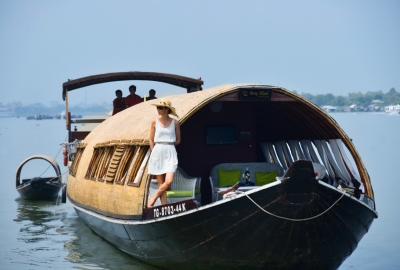
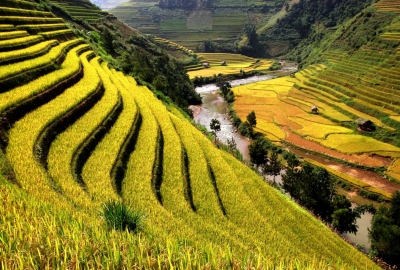
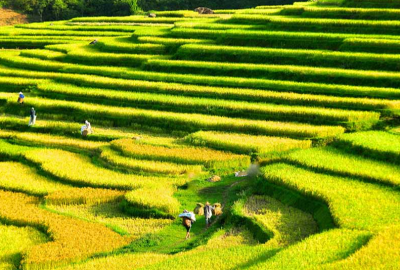

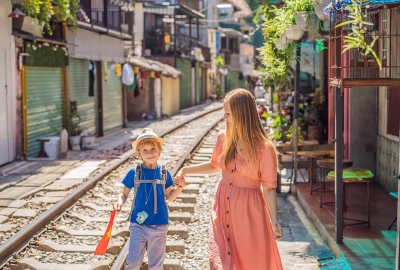
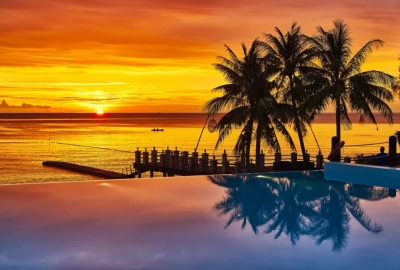
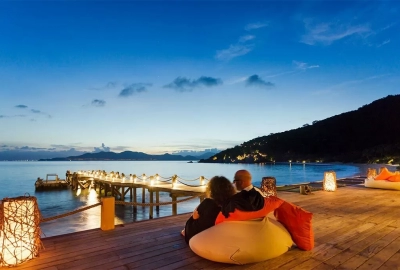

.webp)

